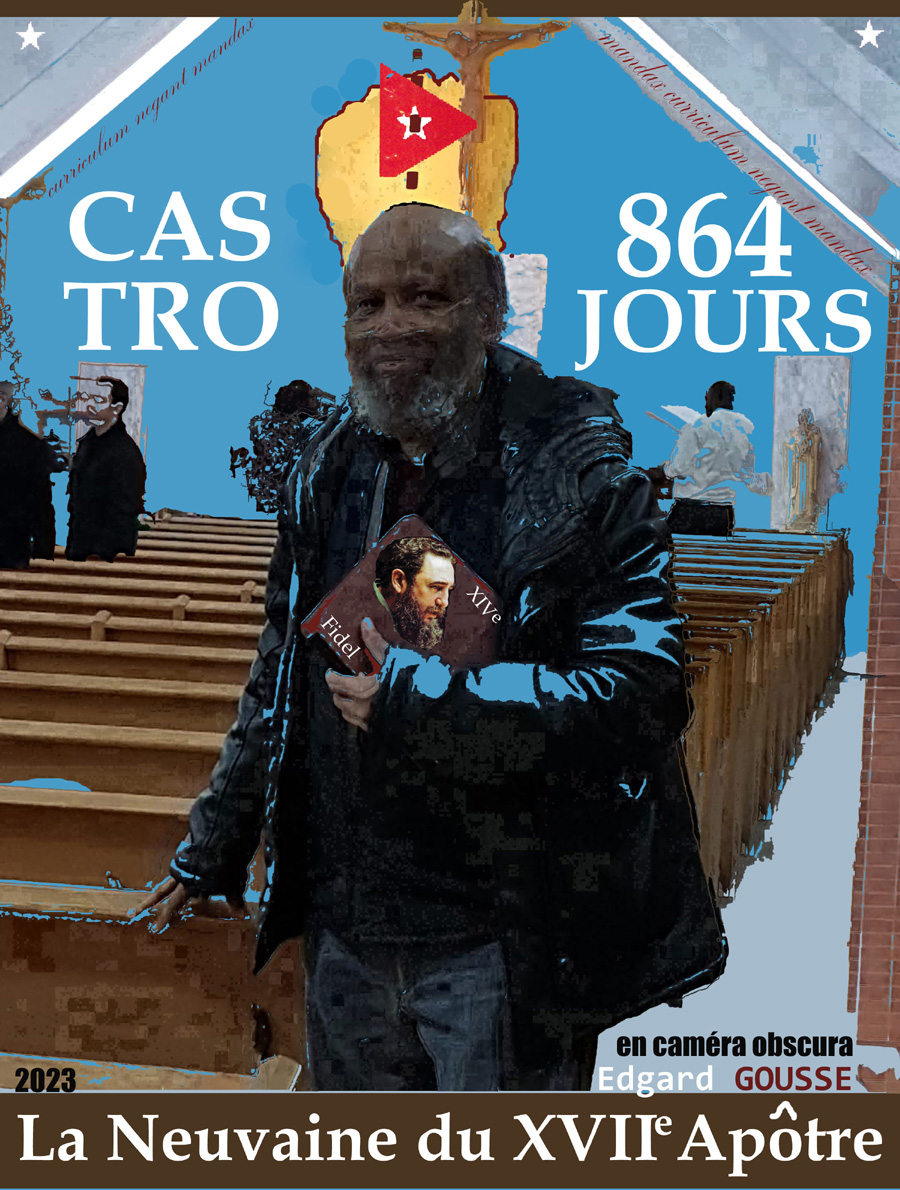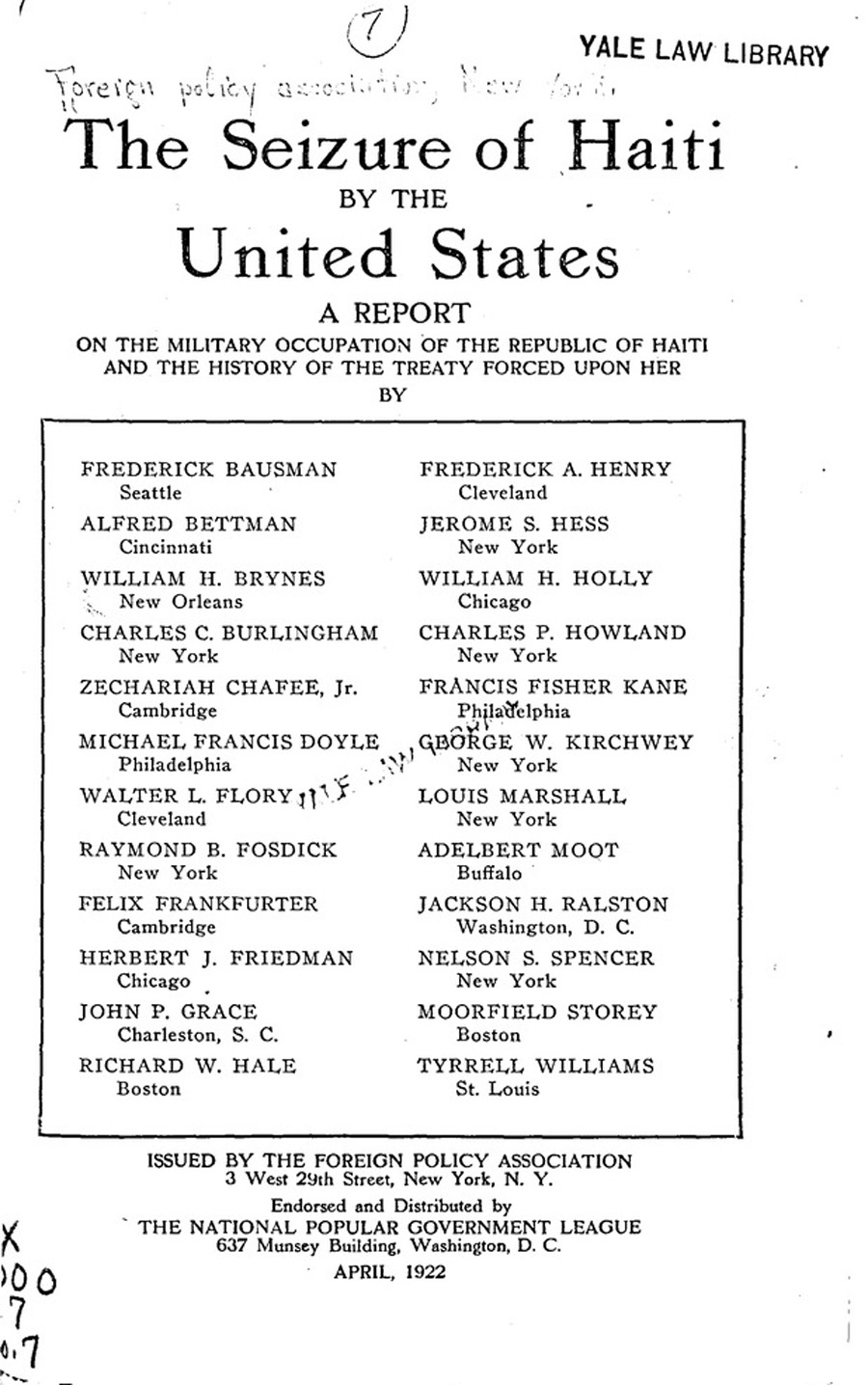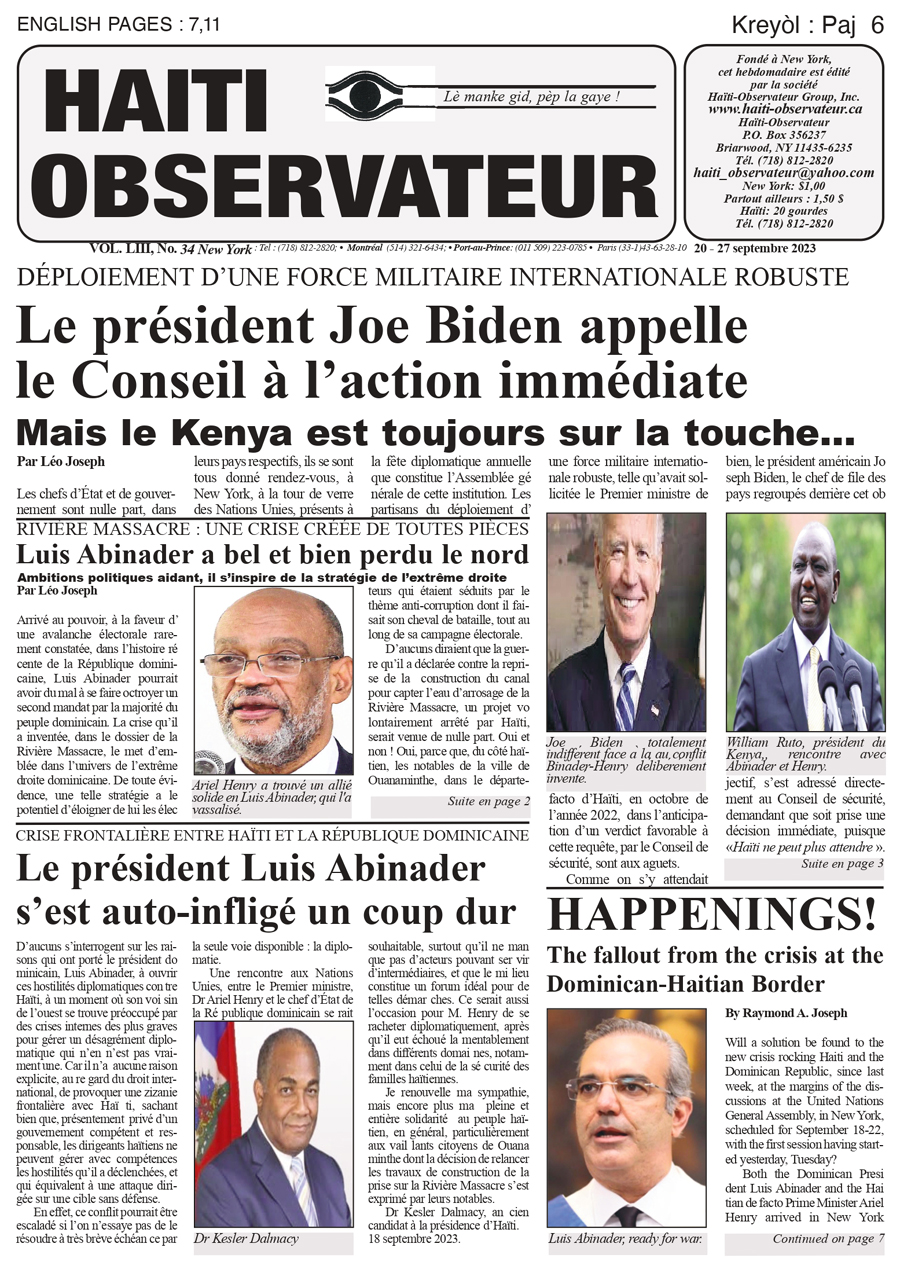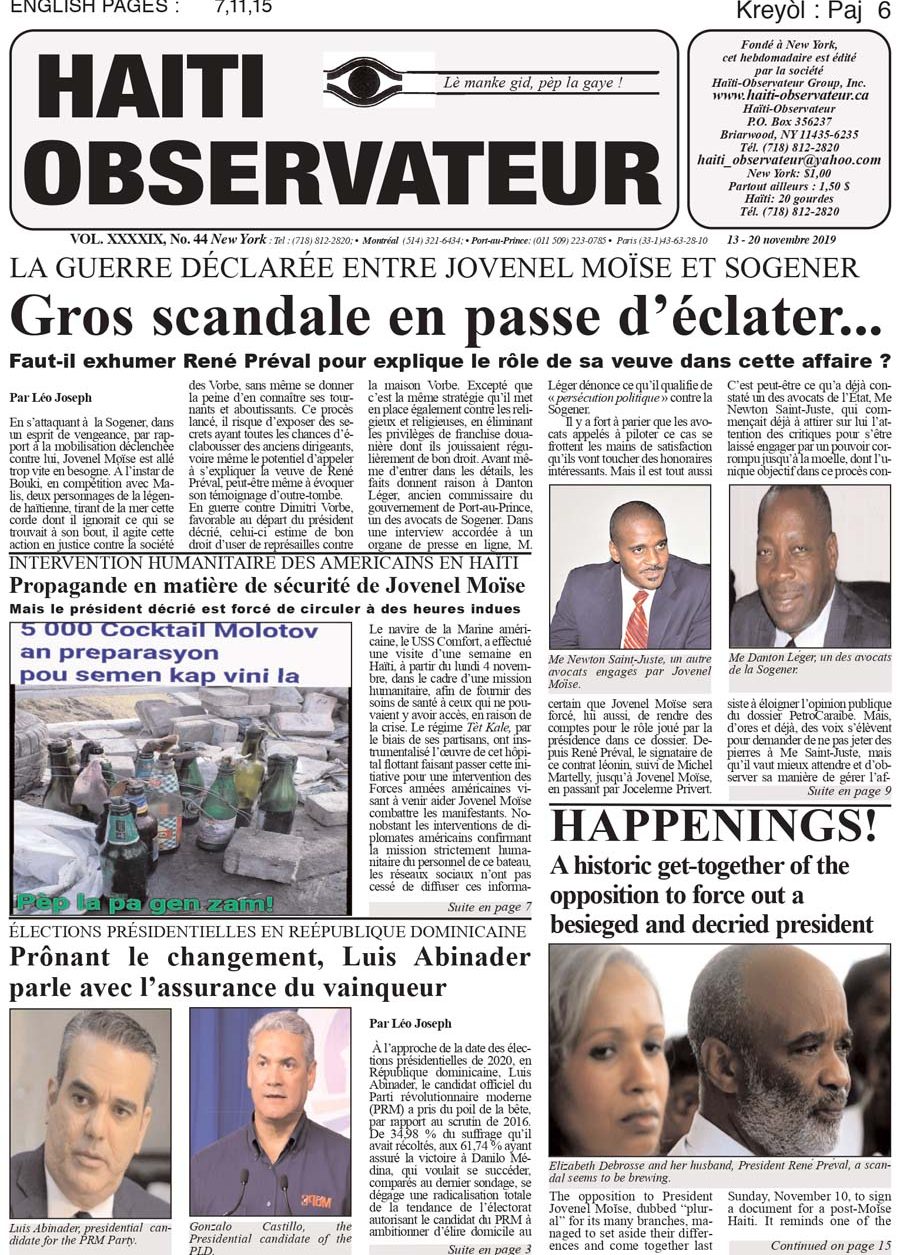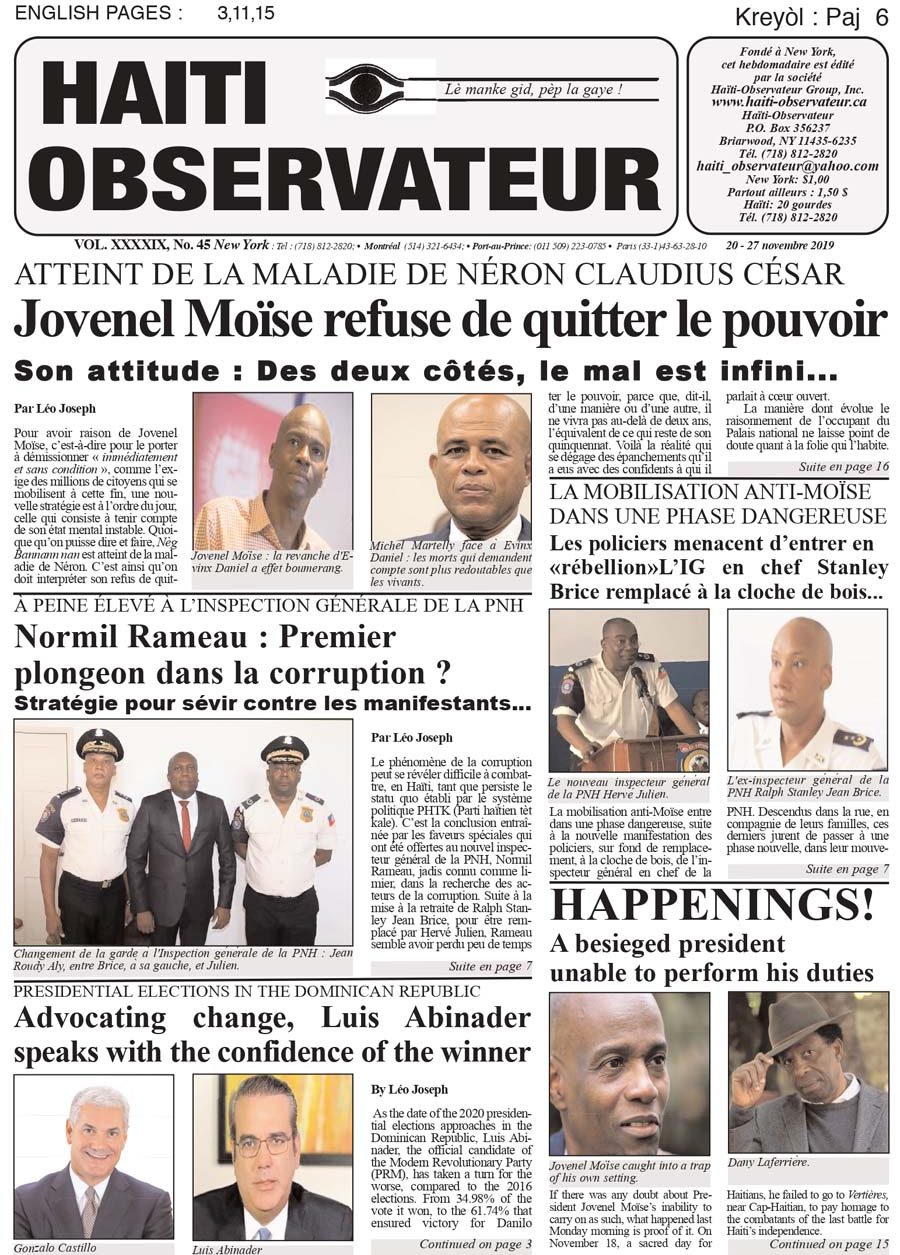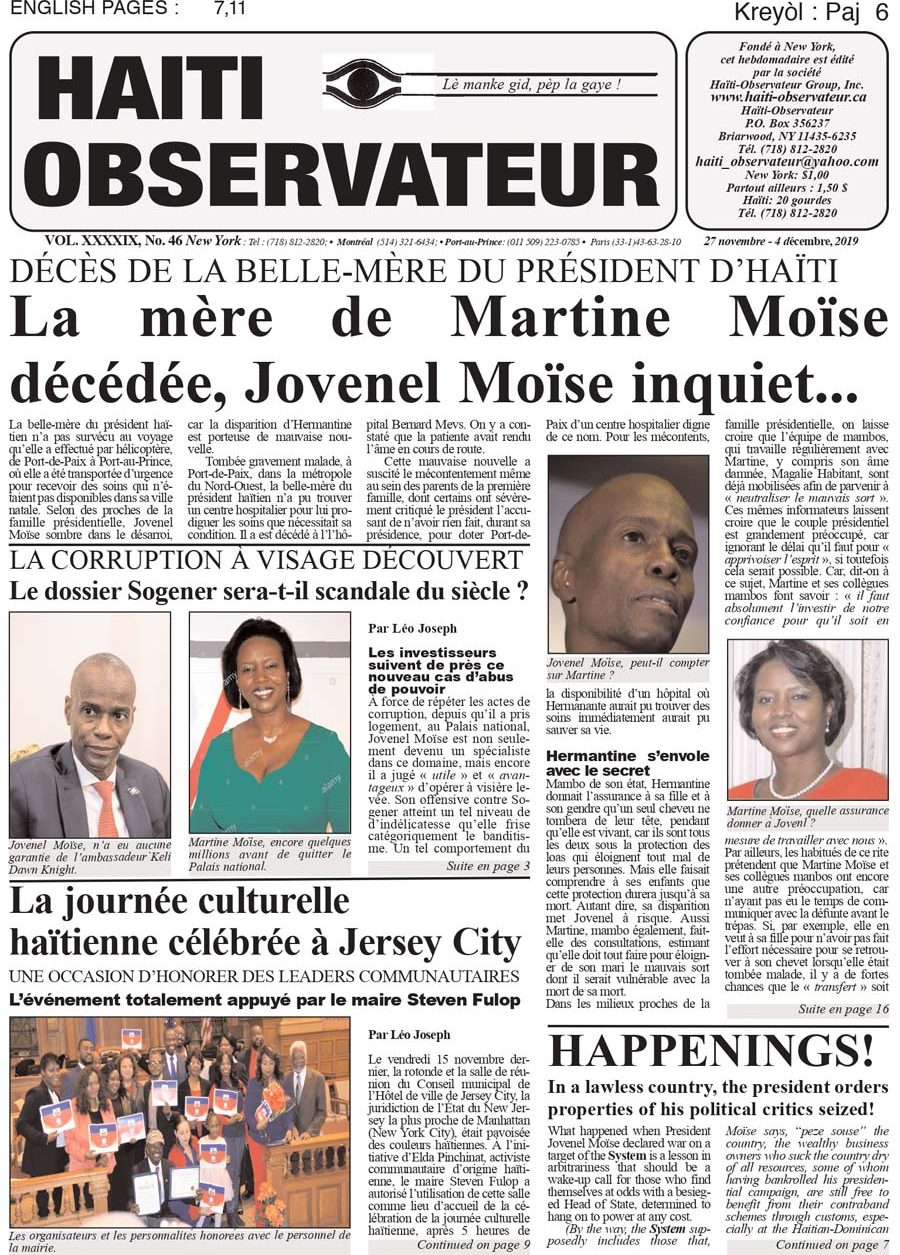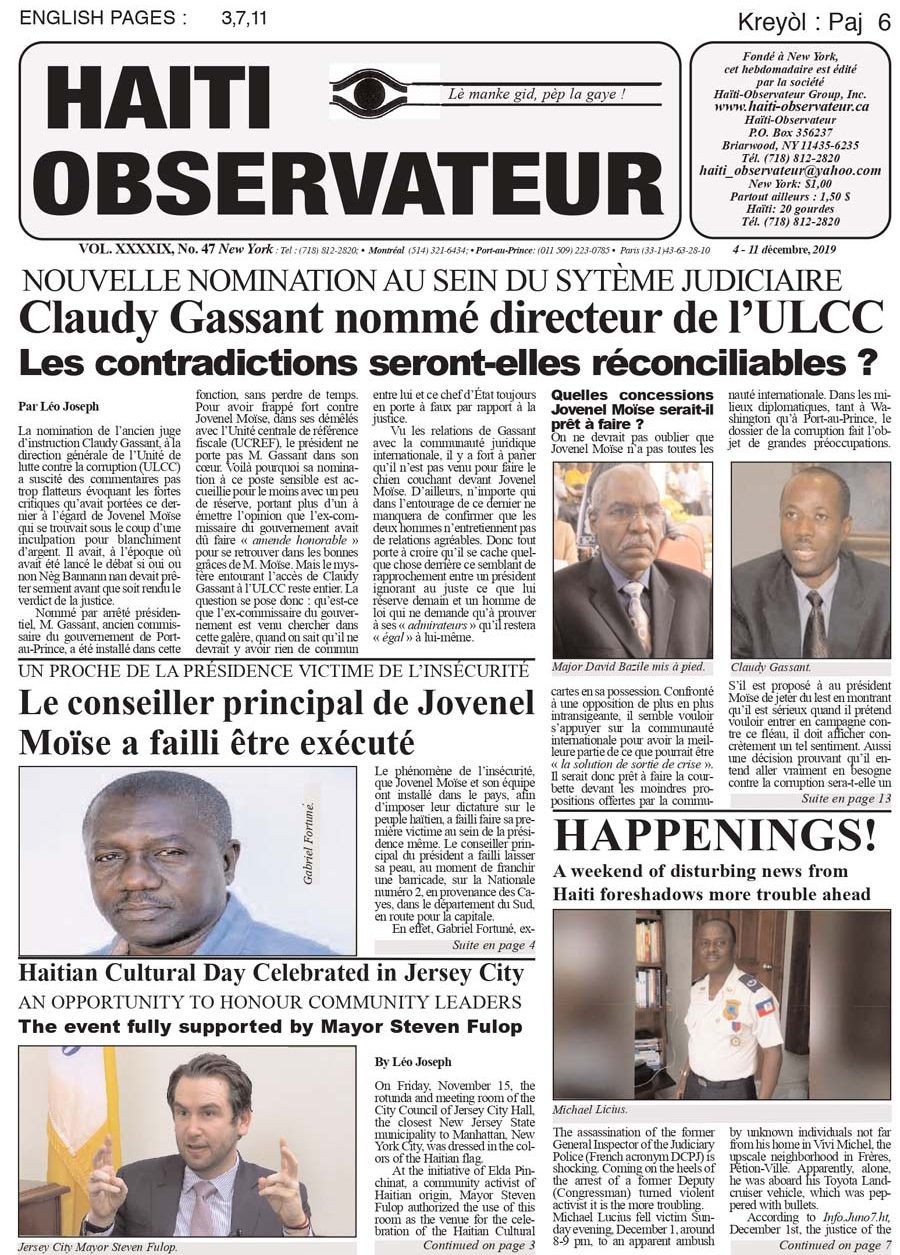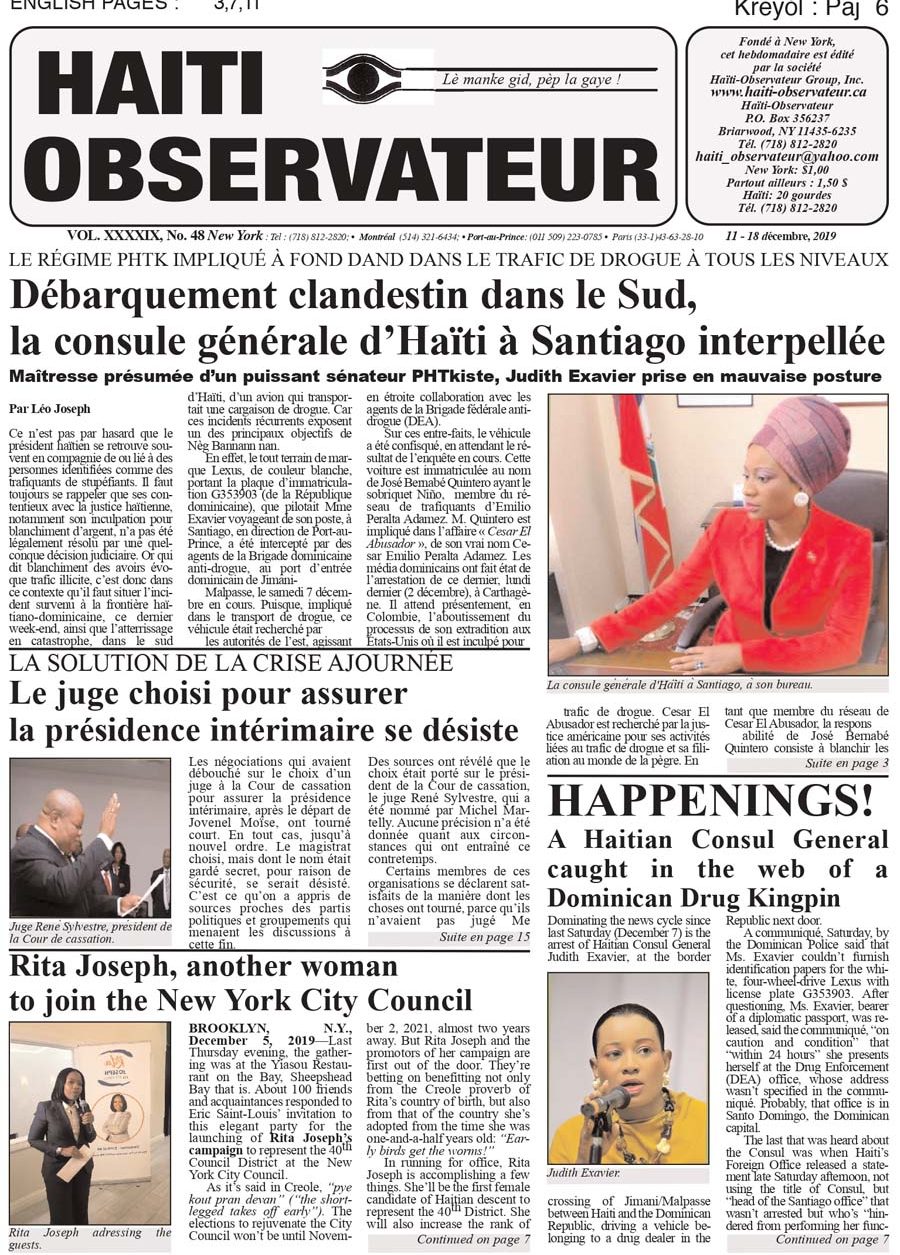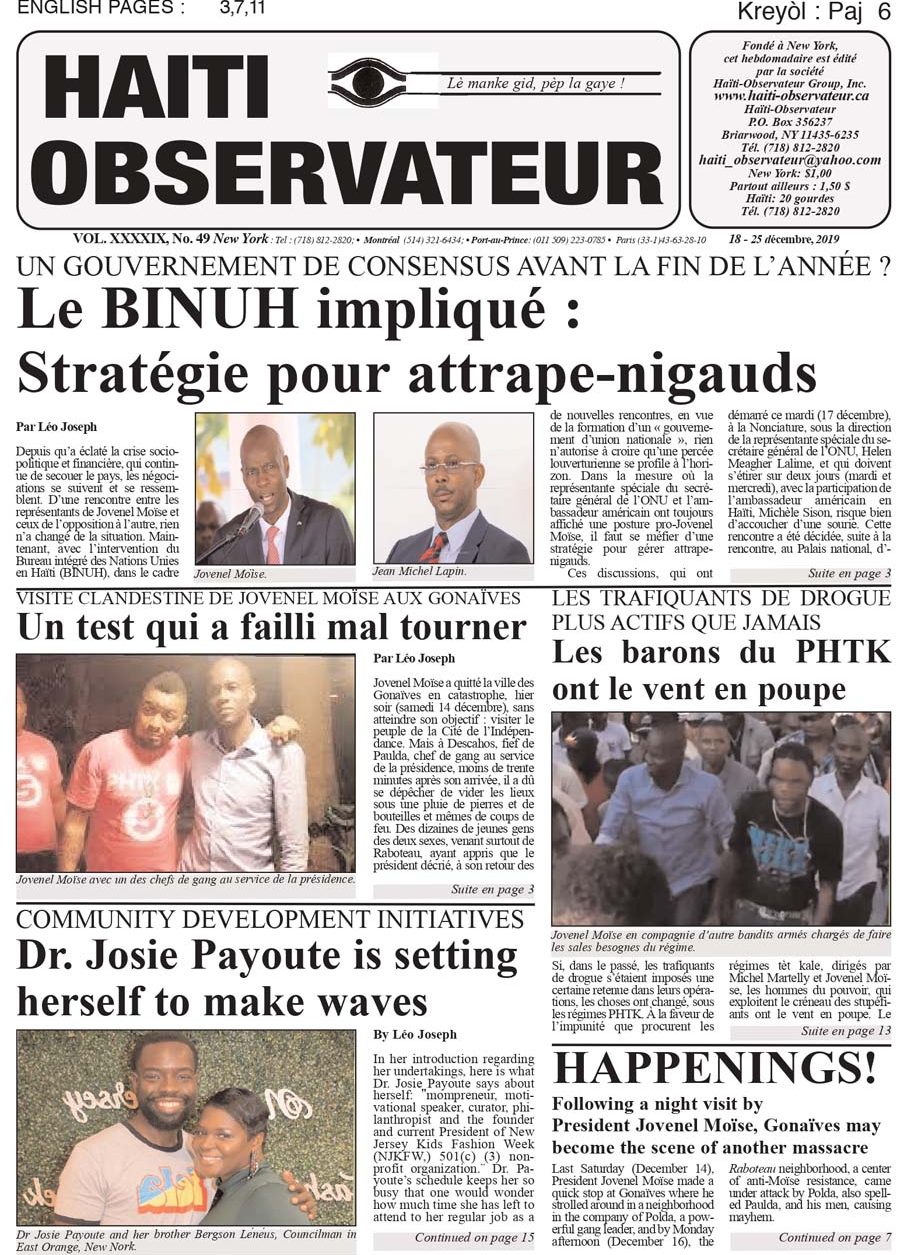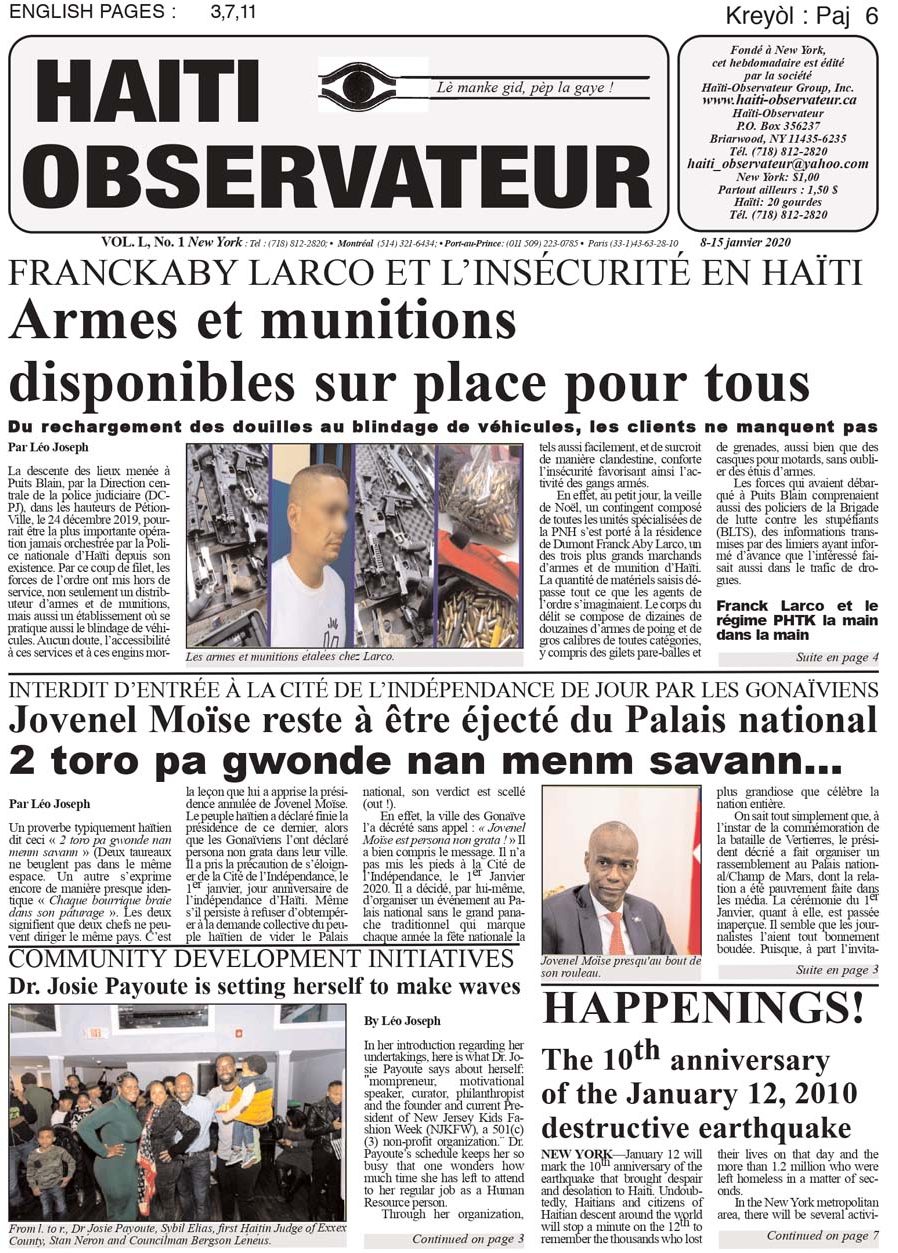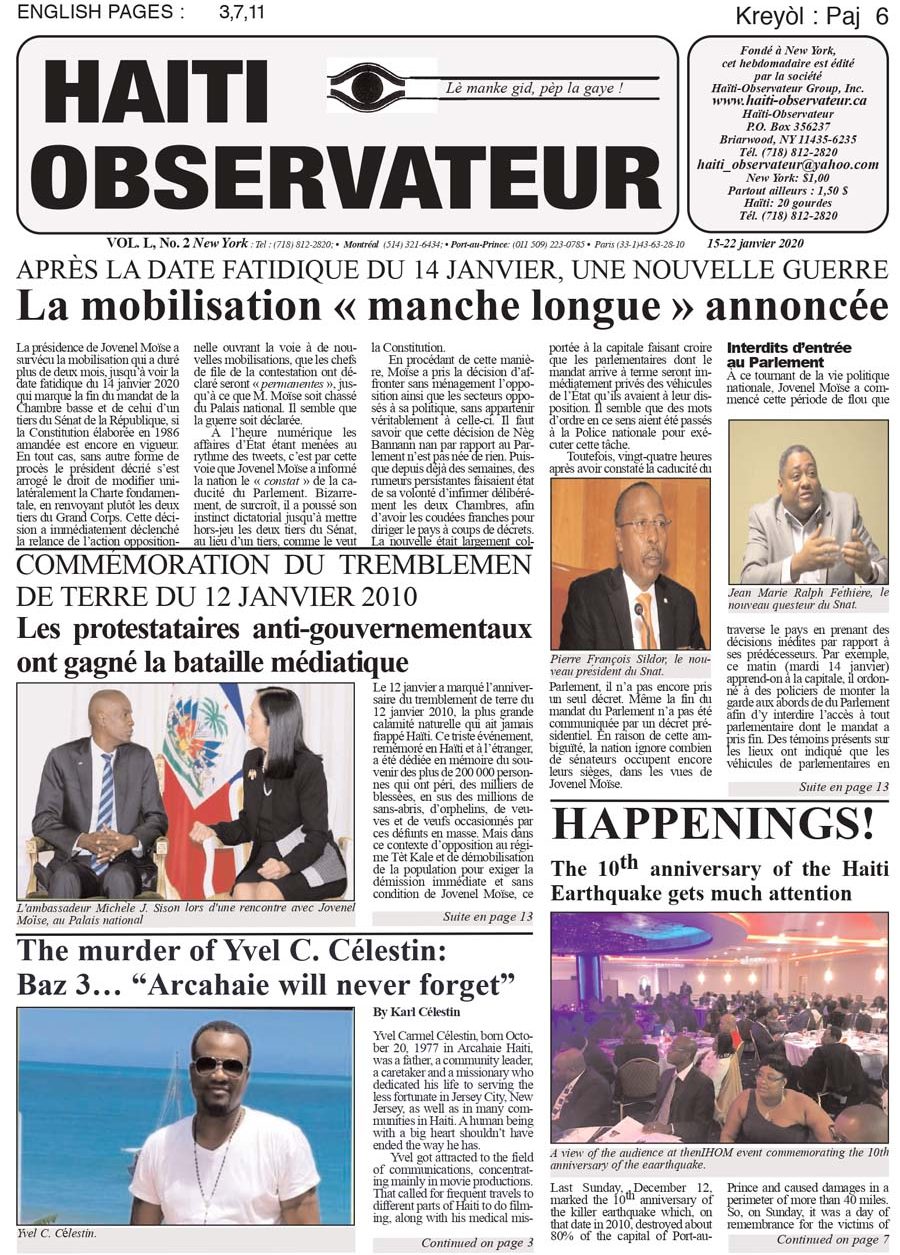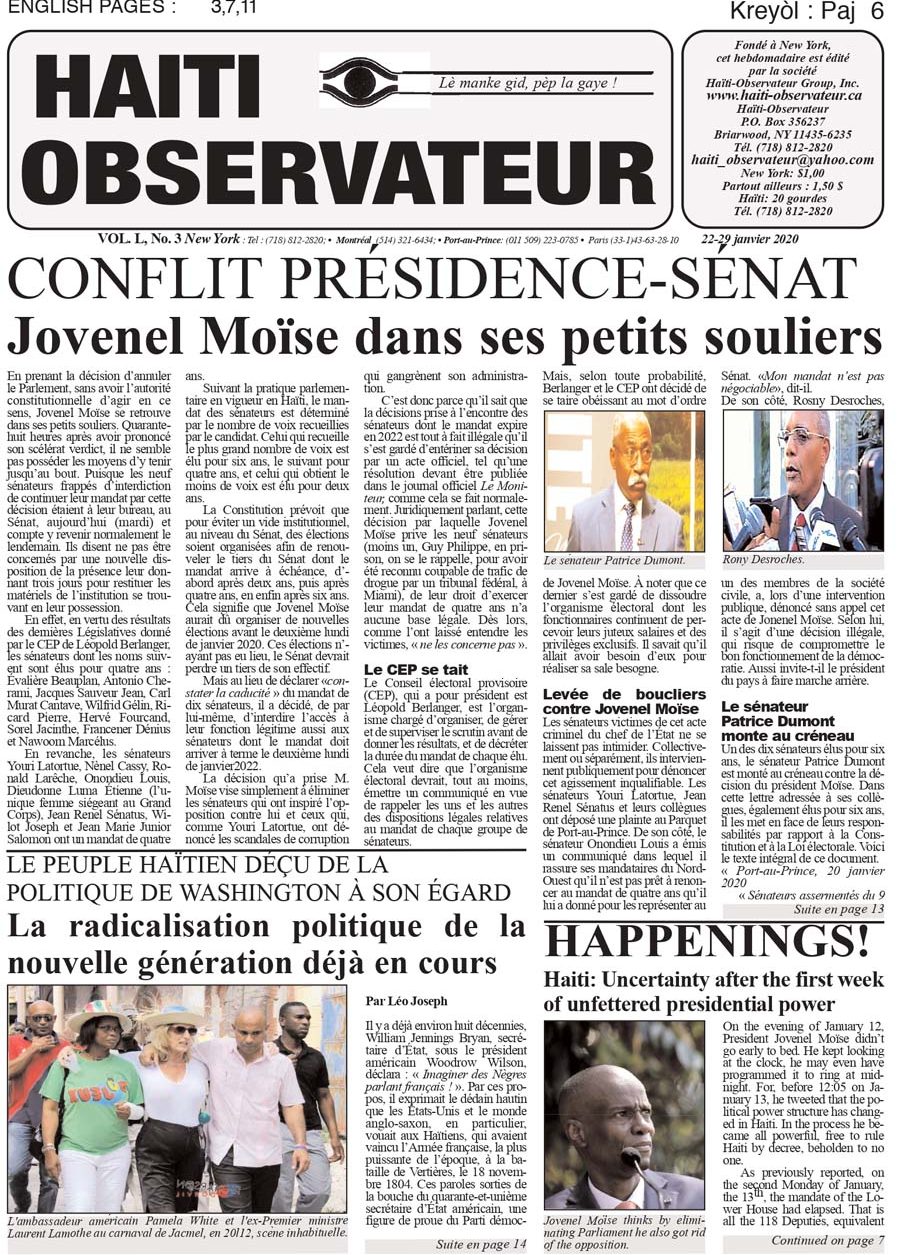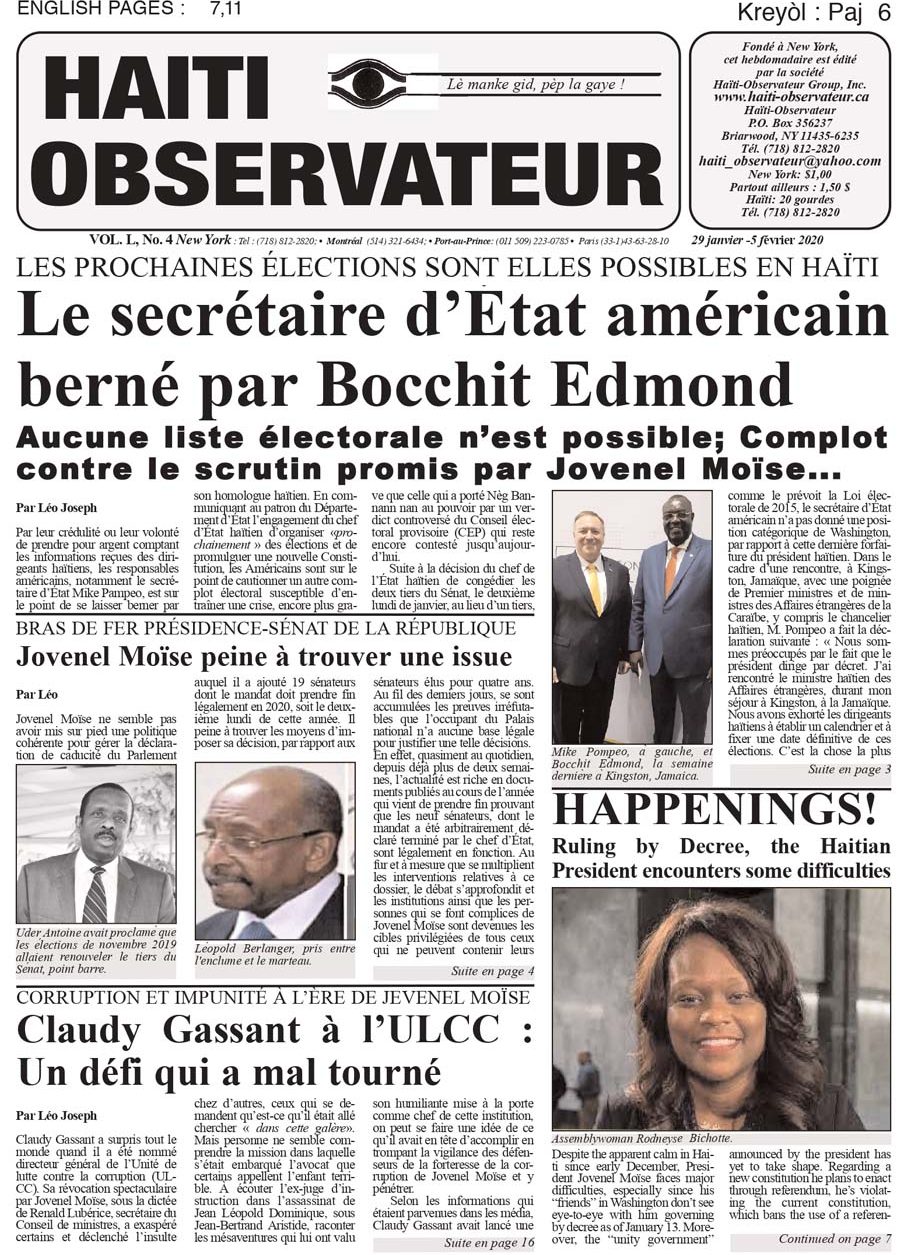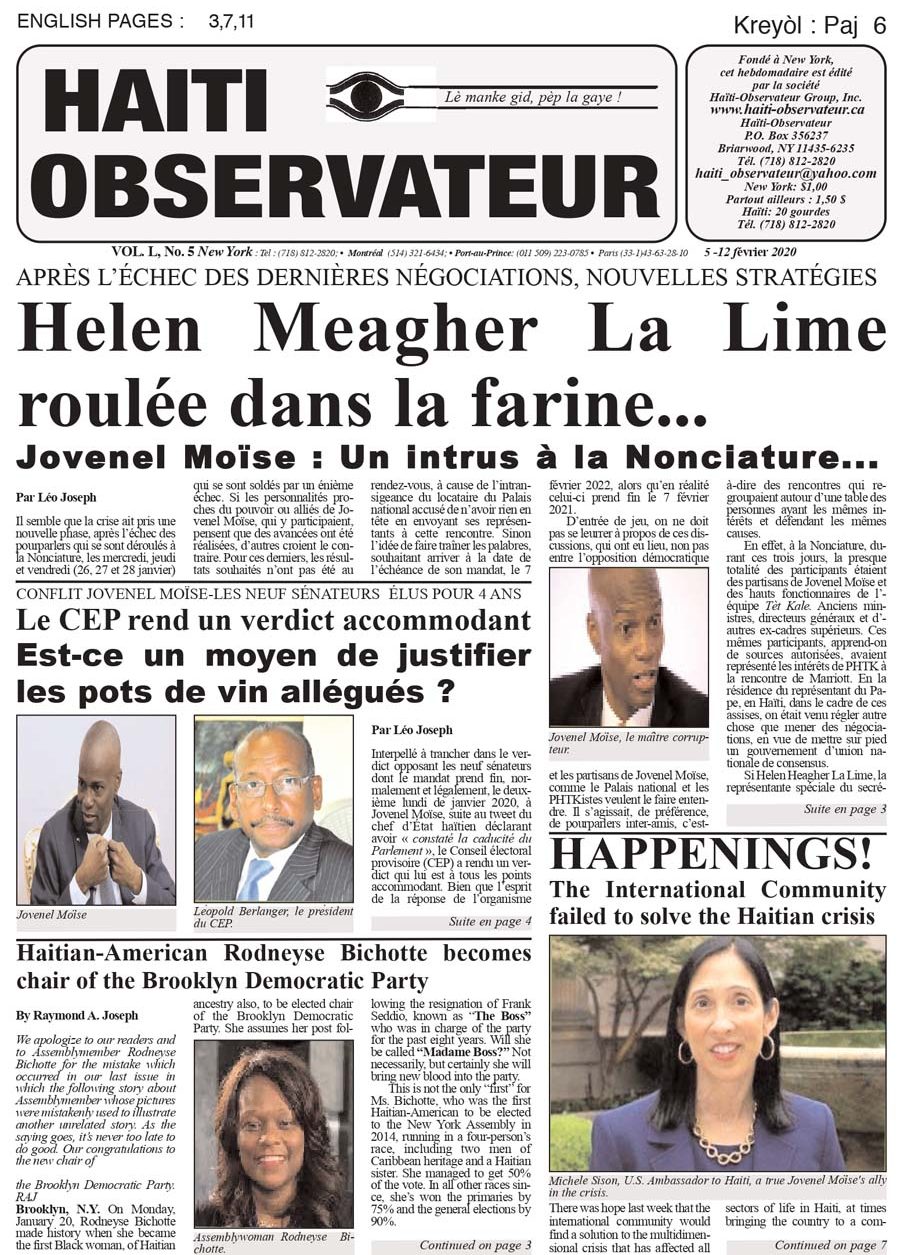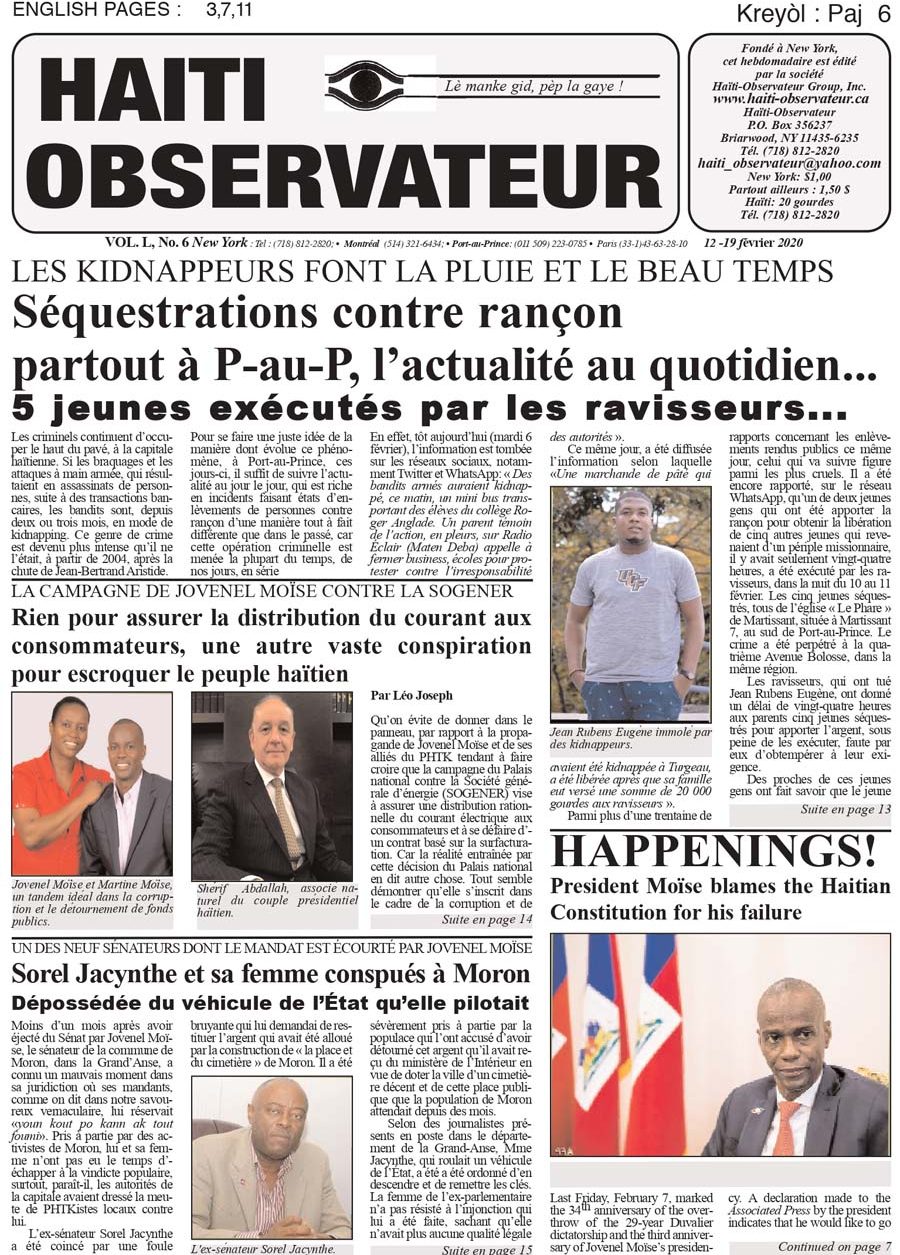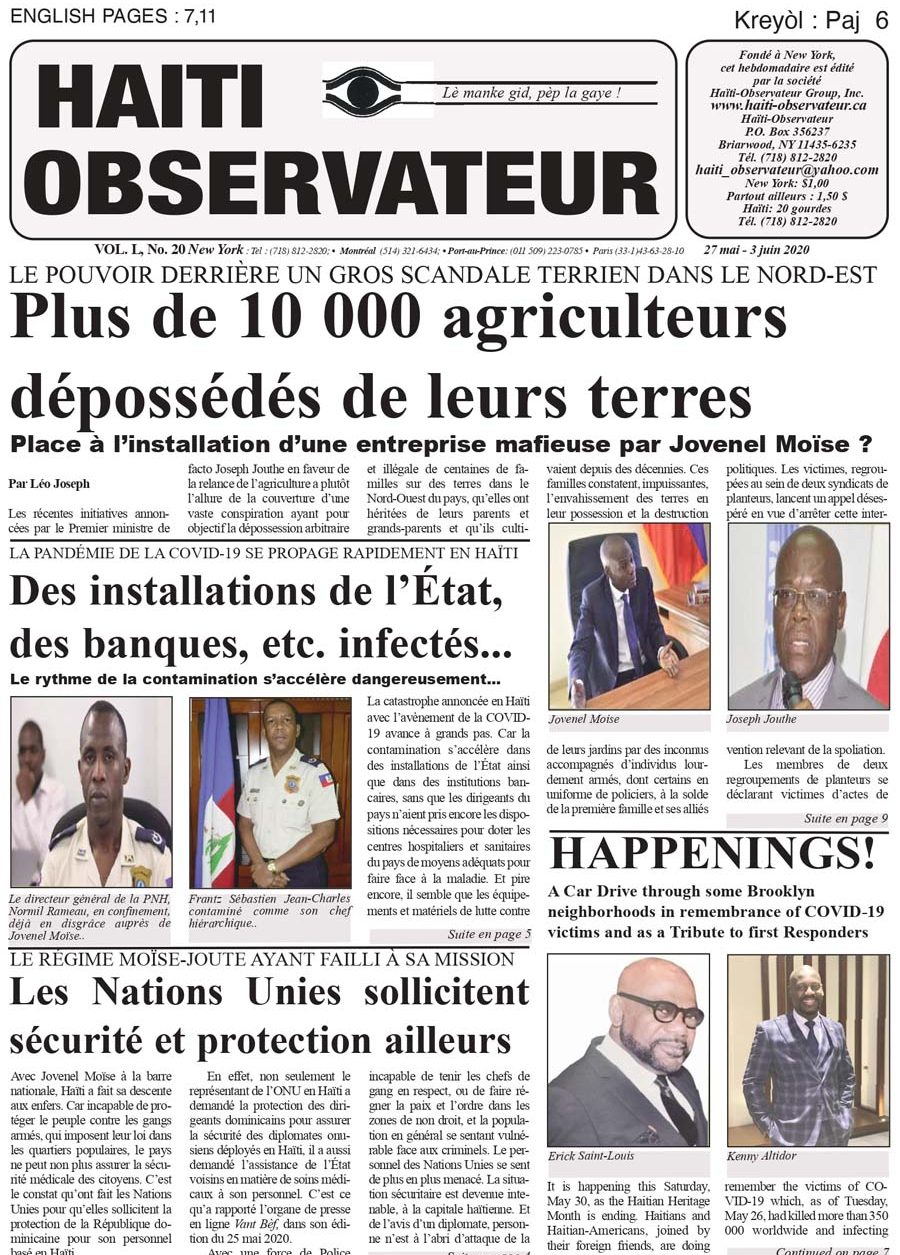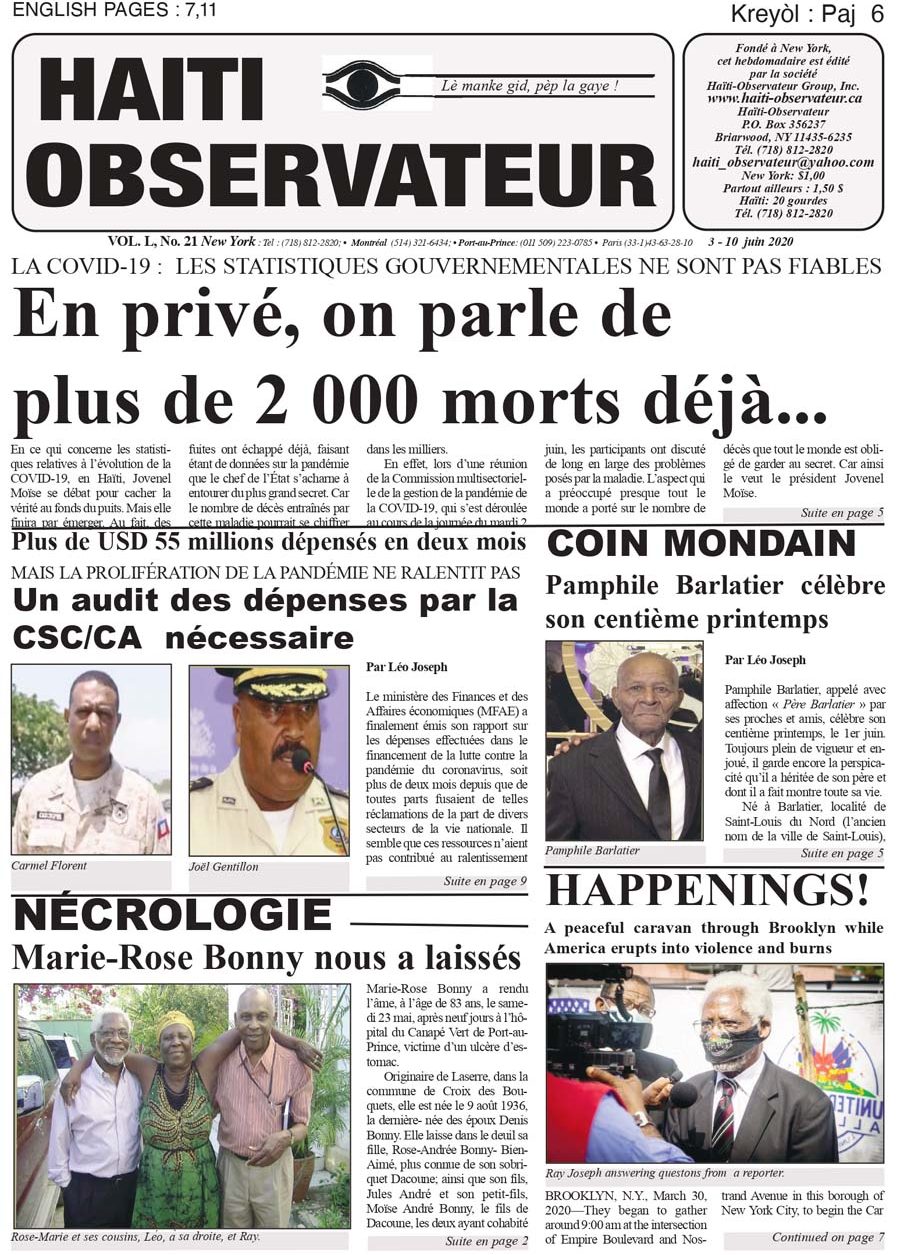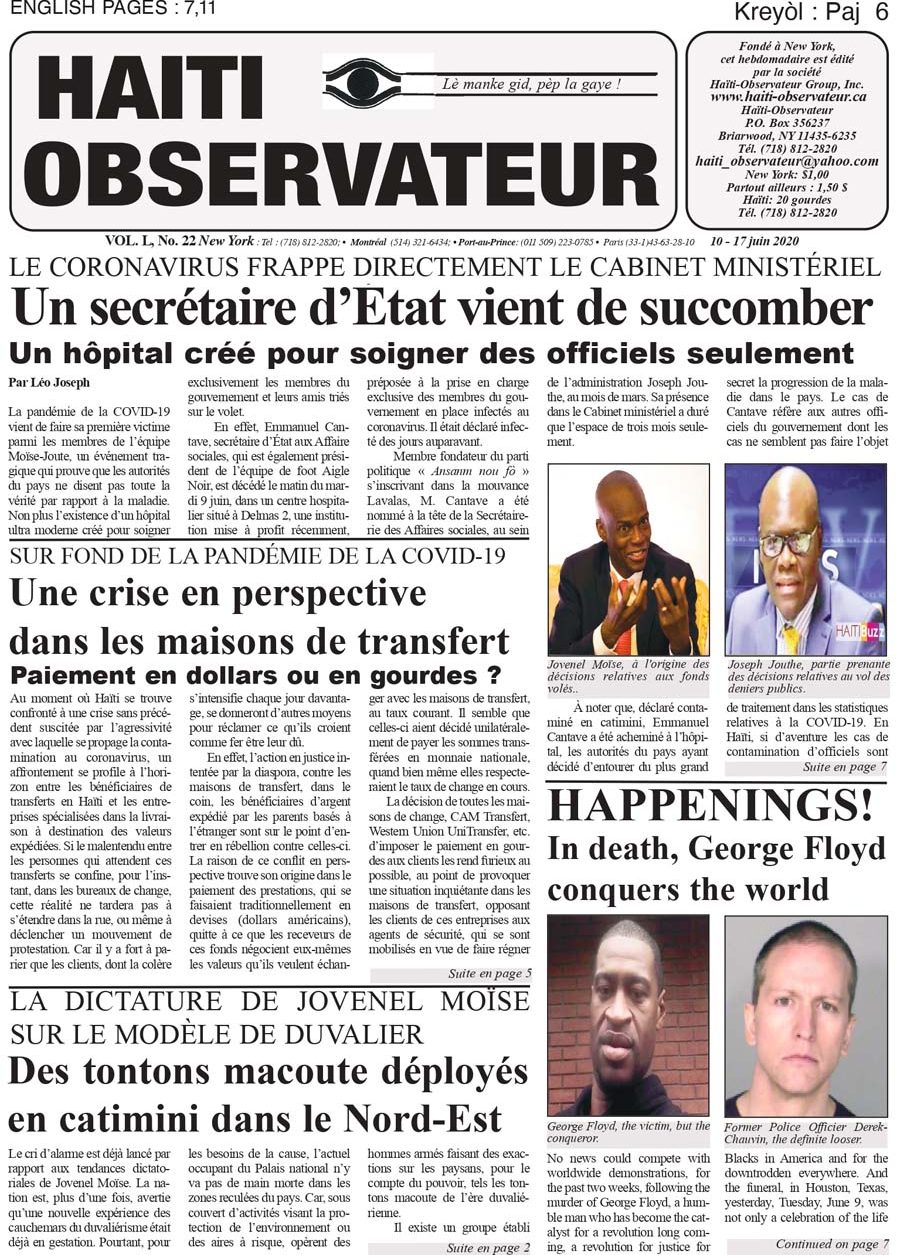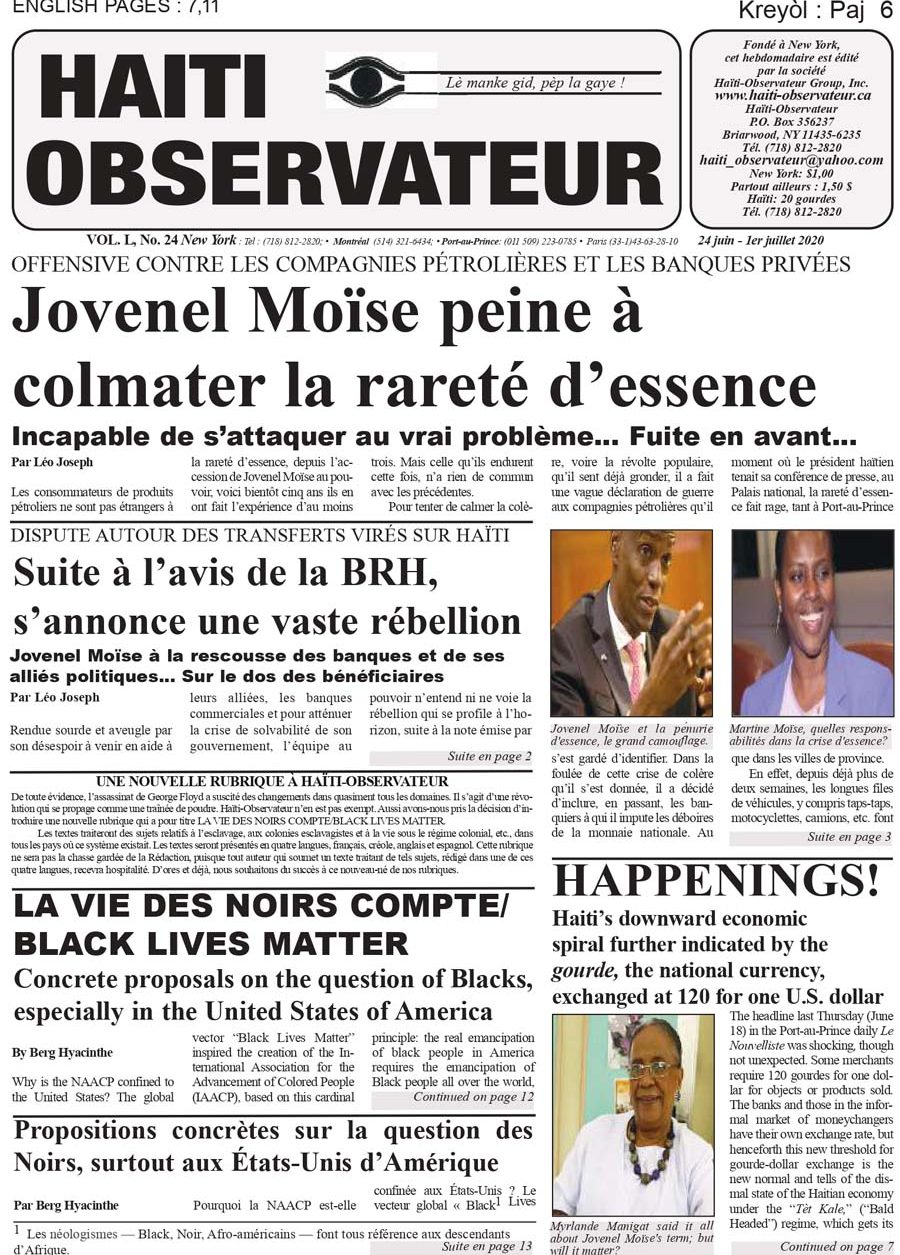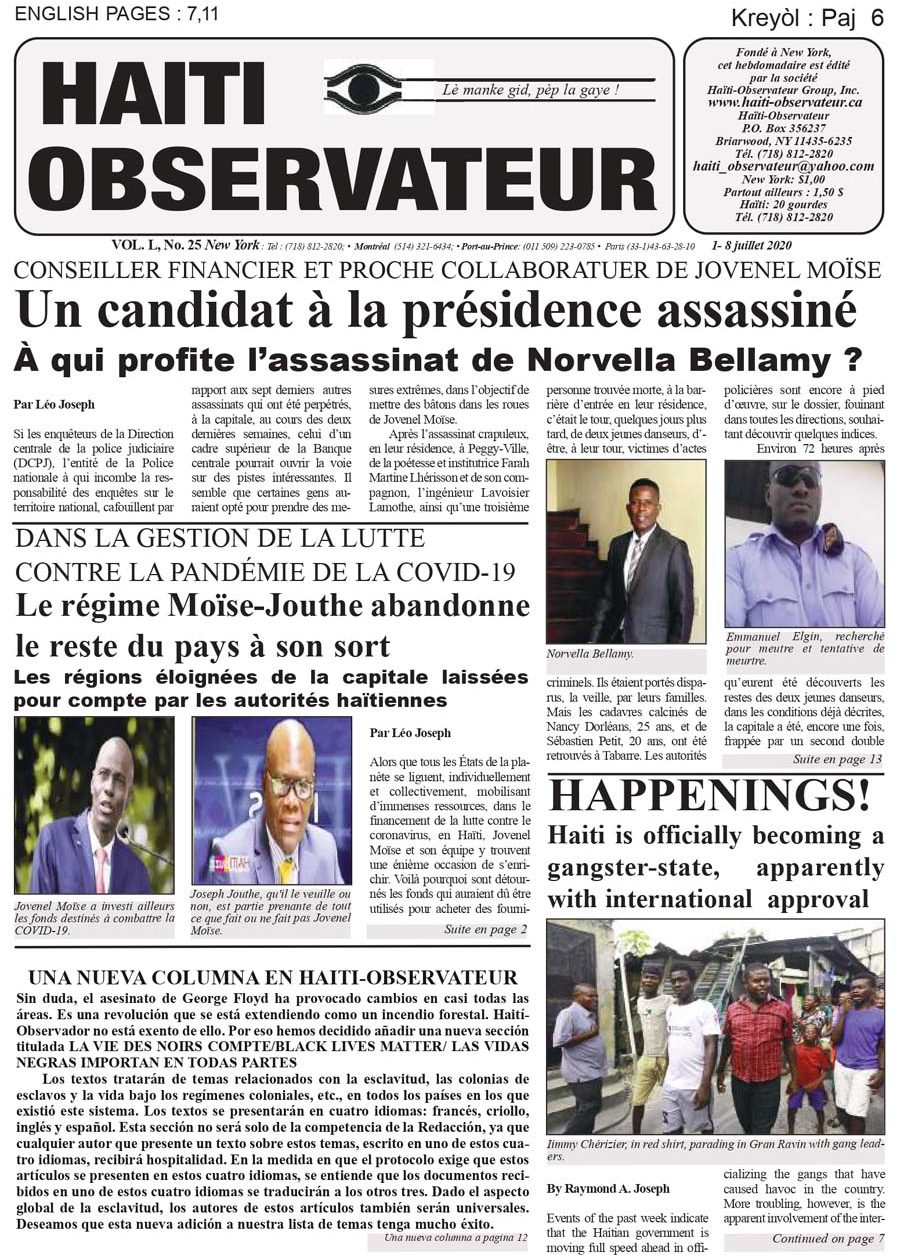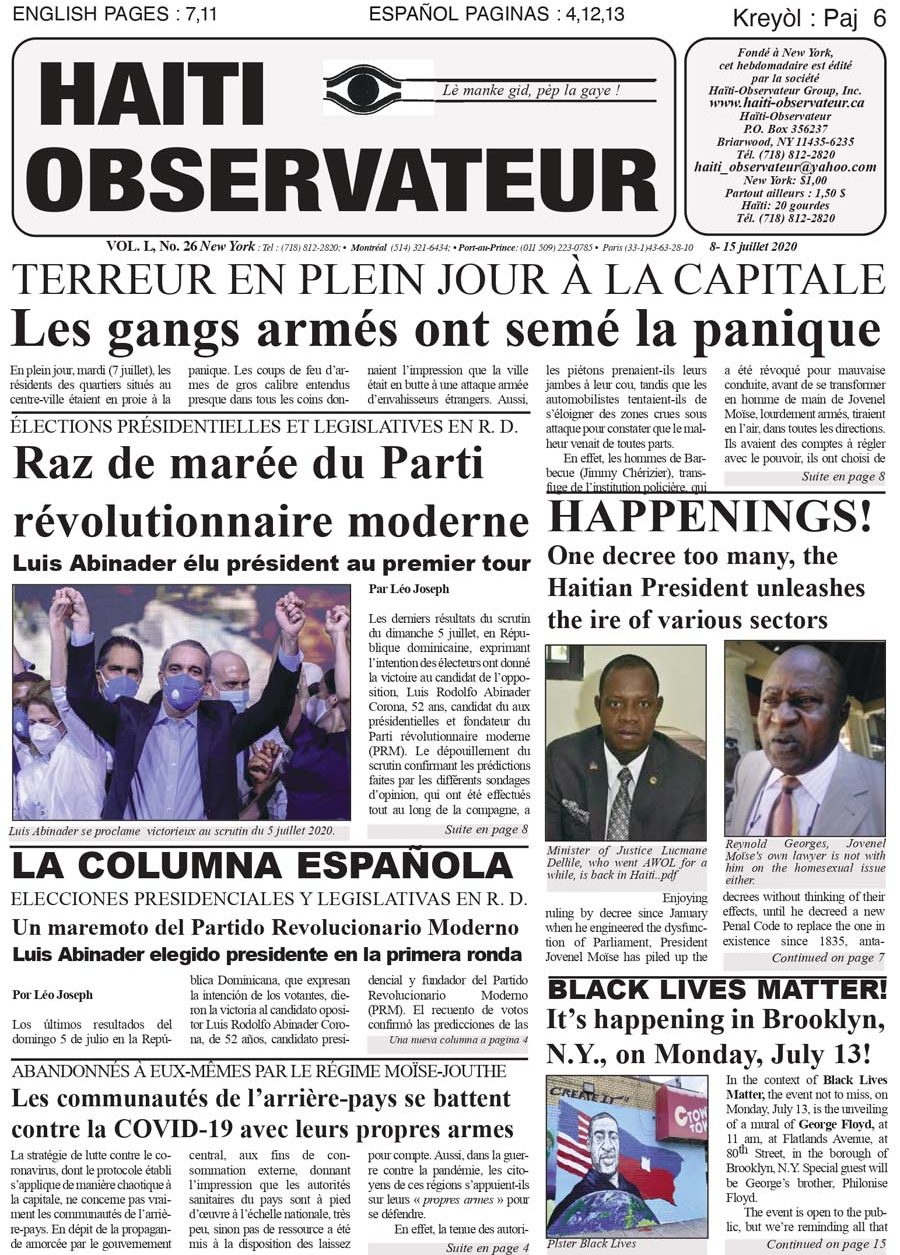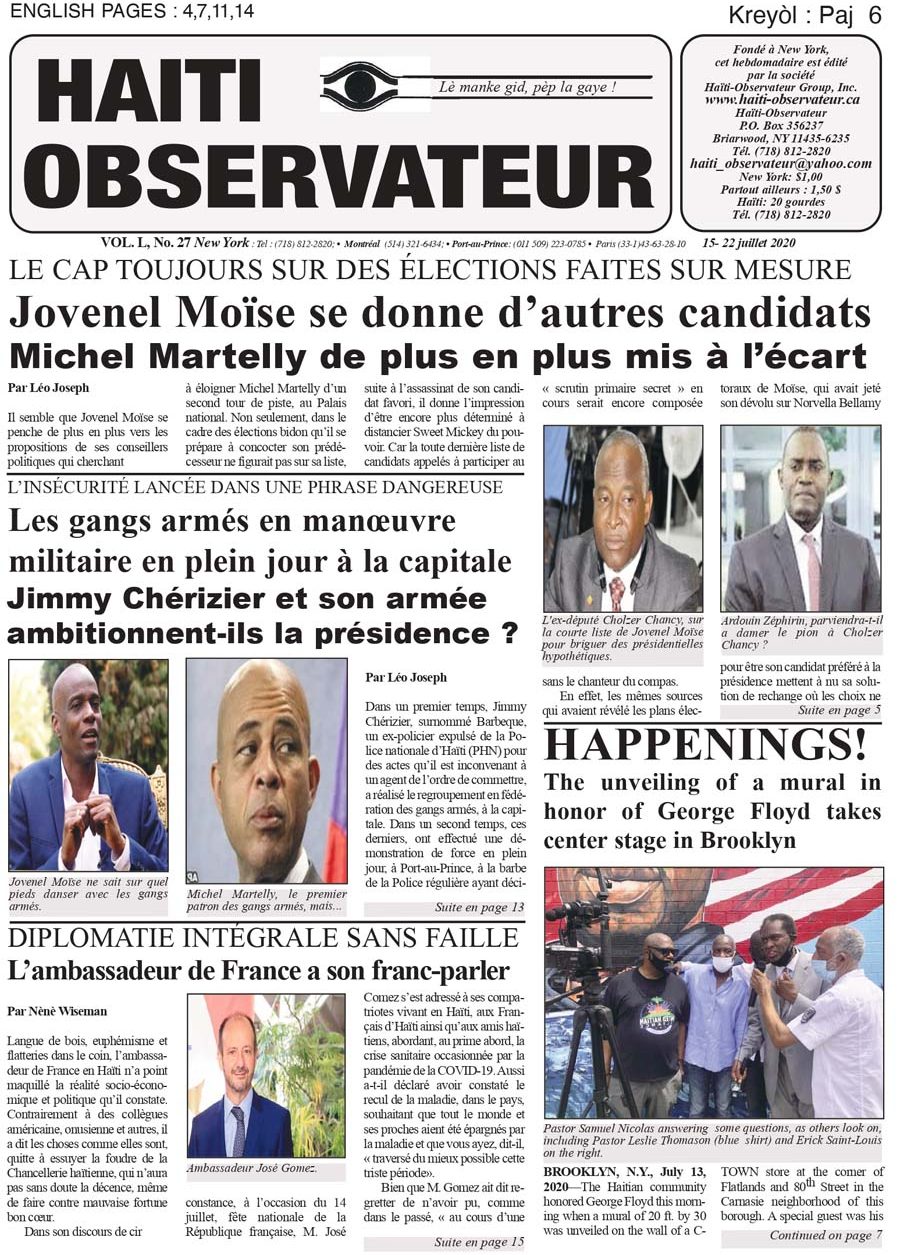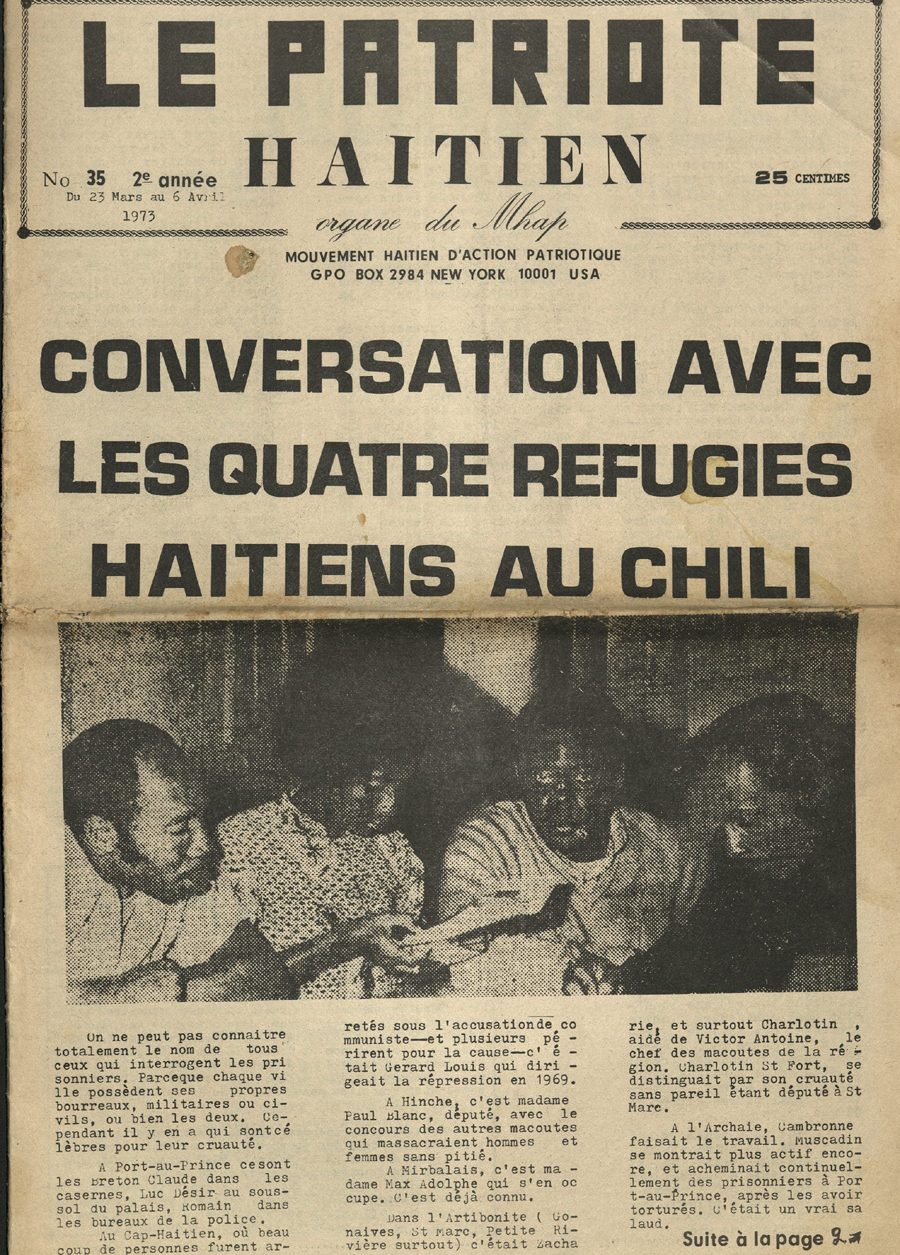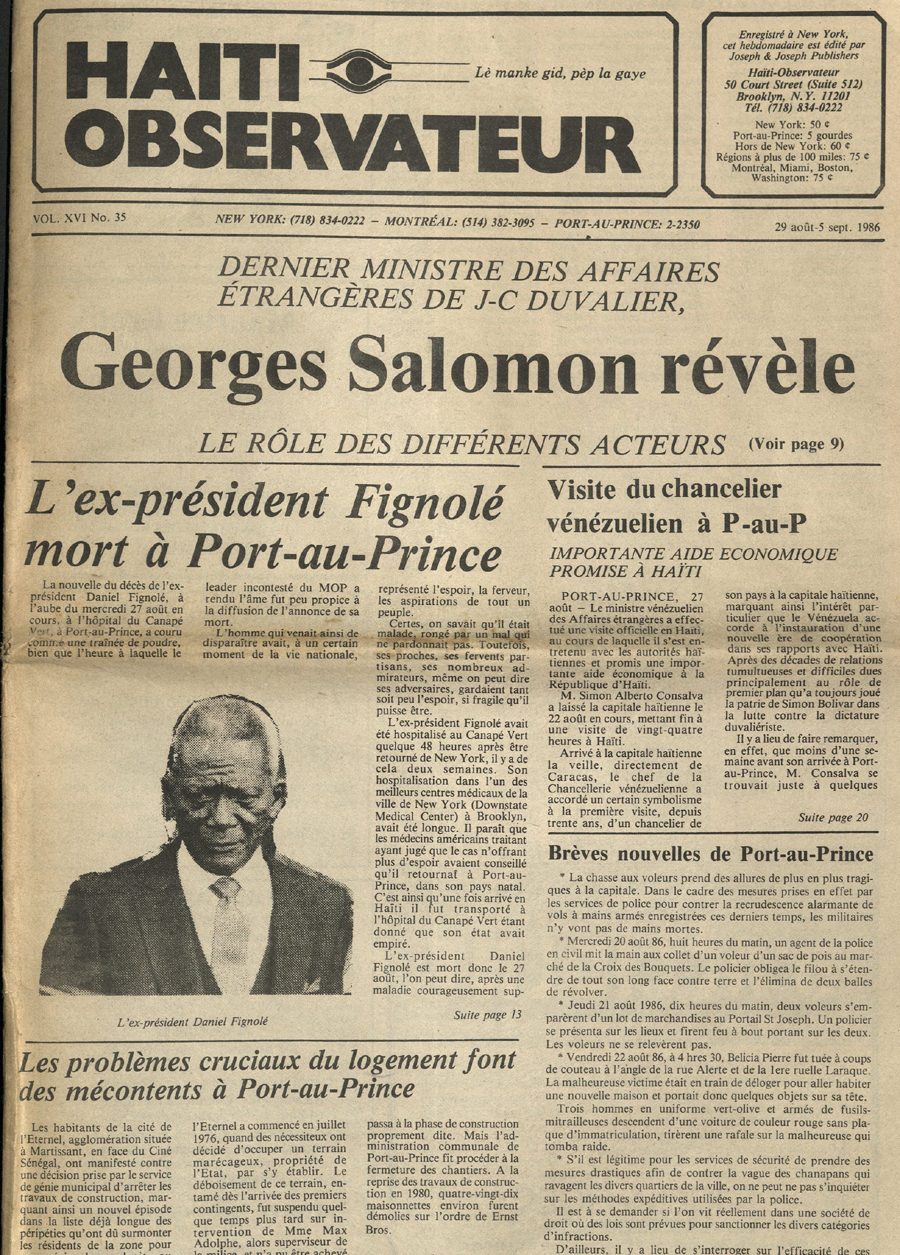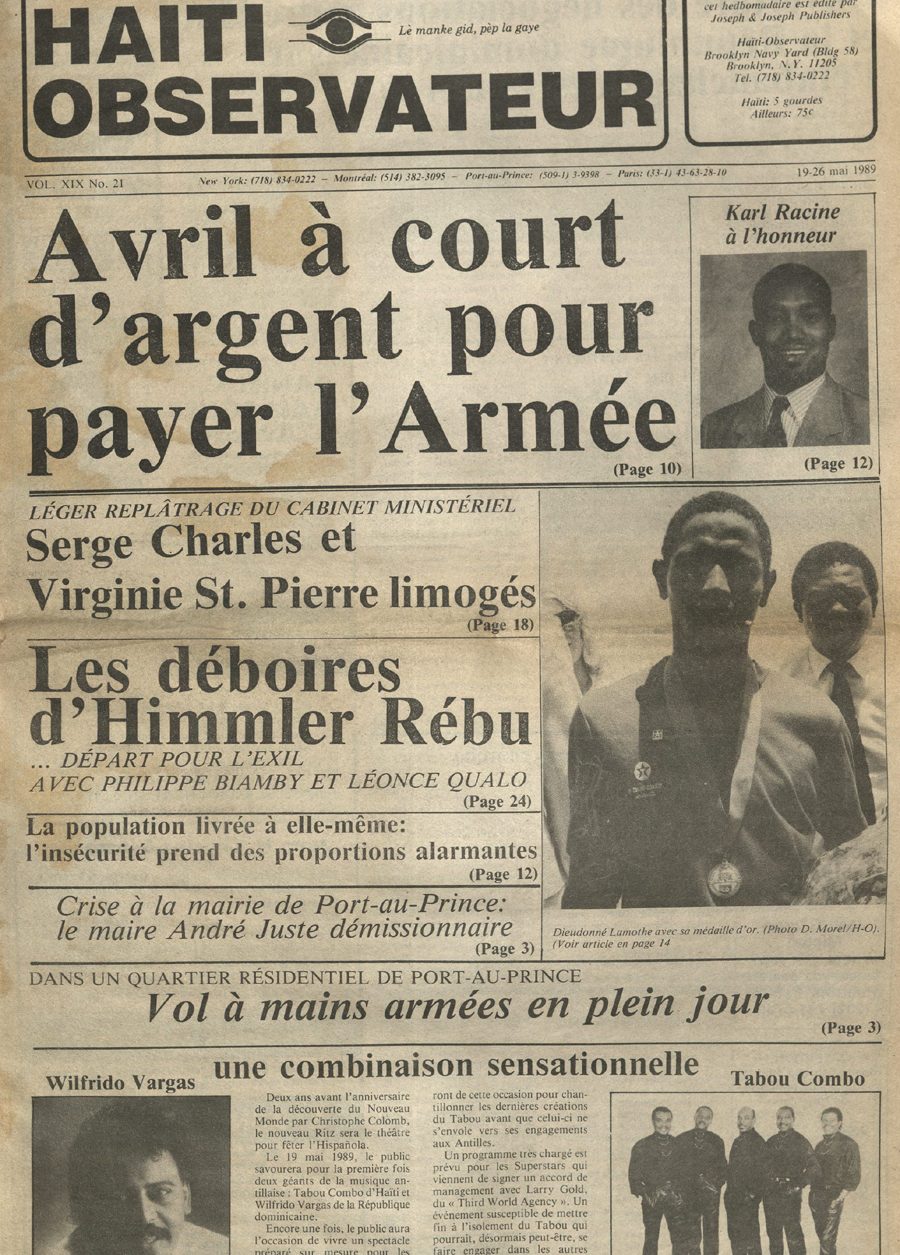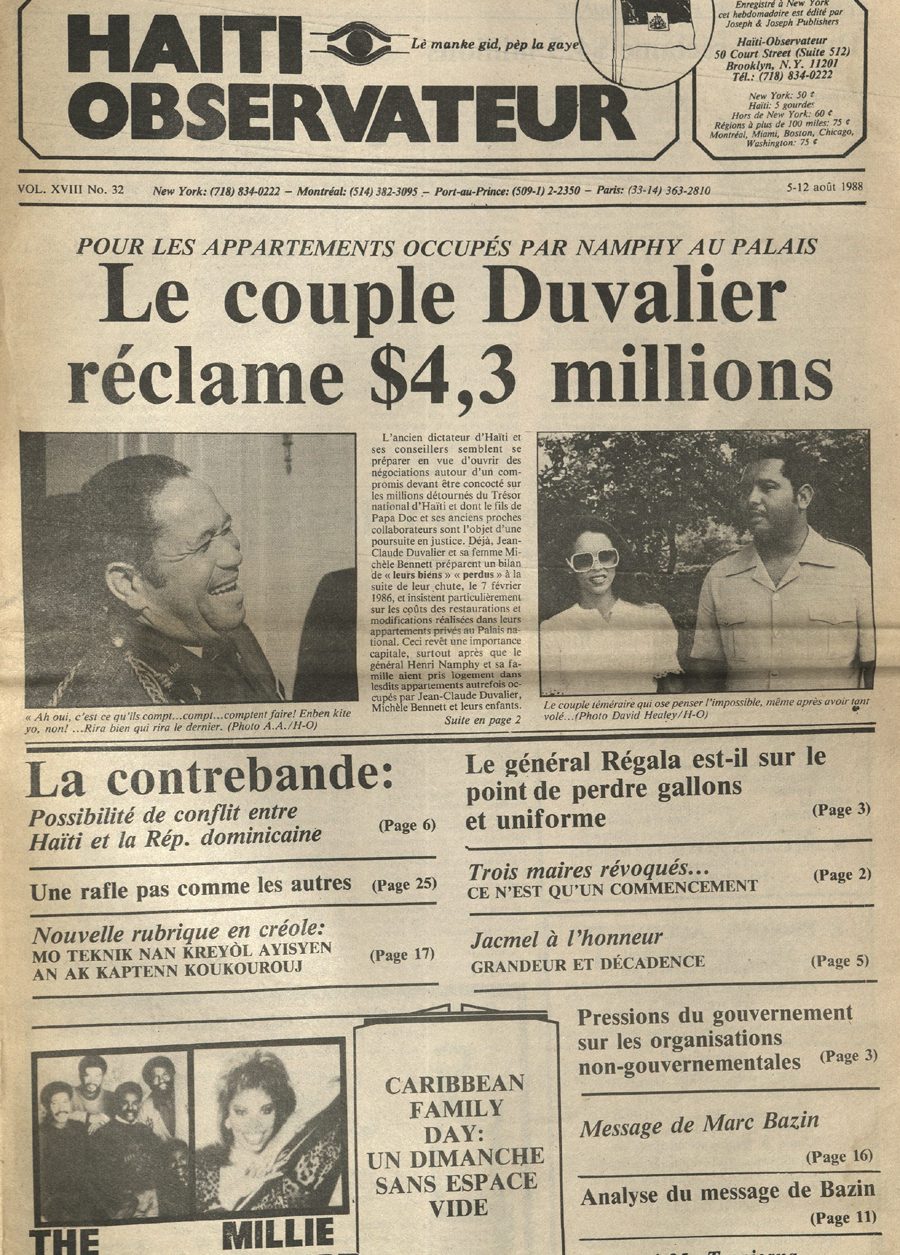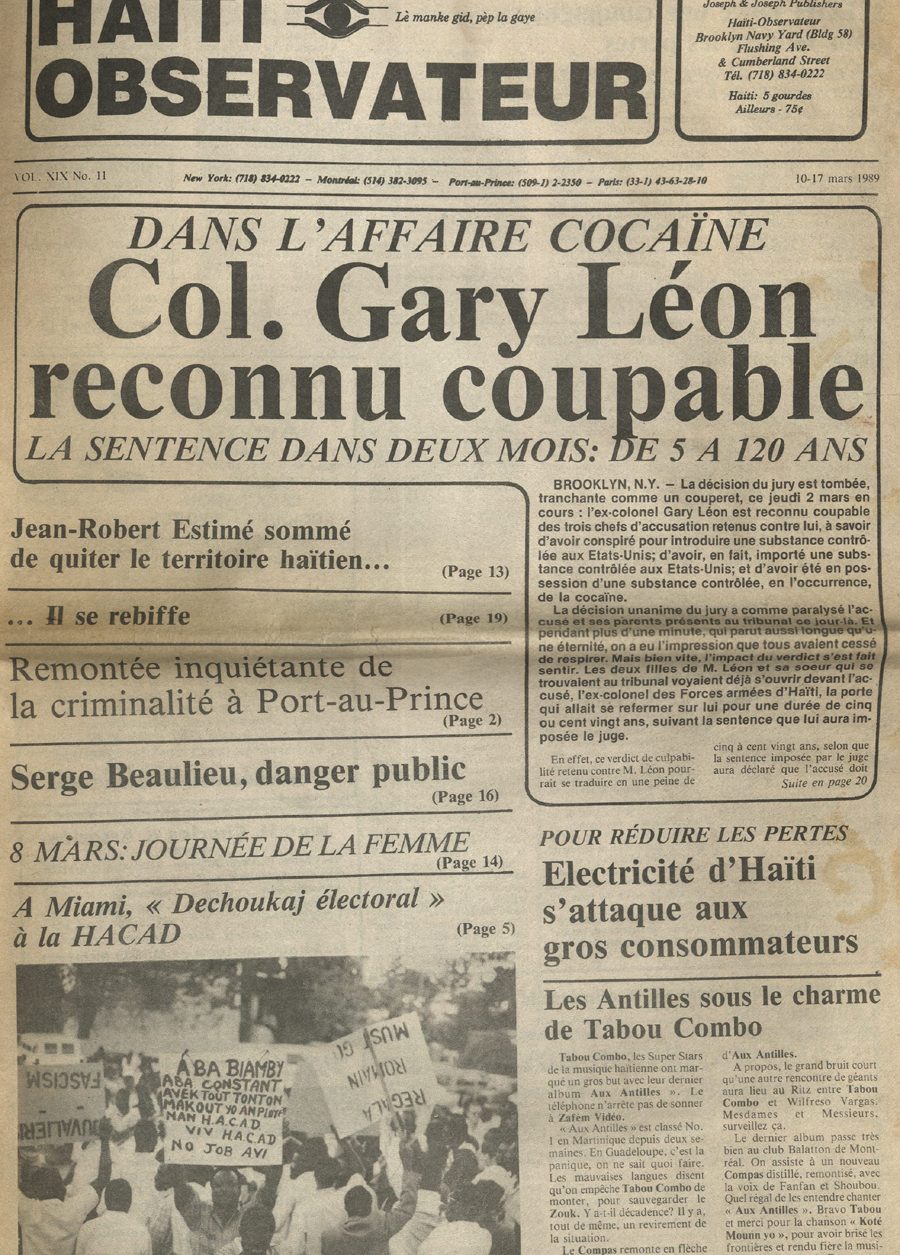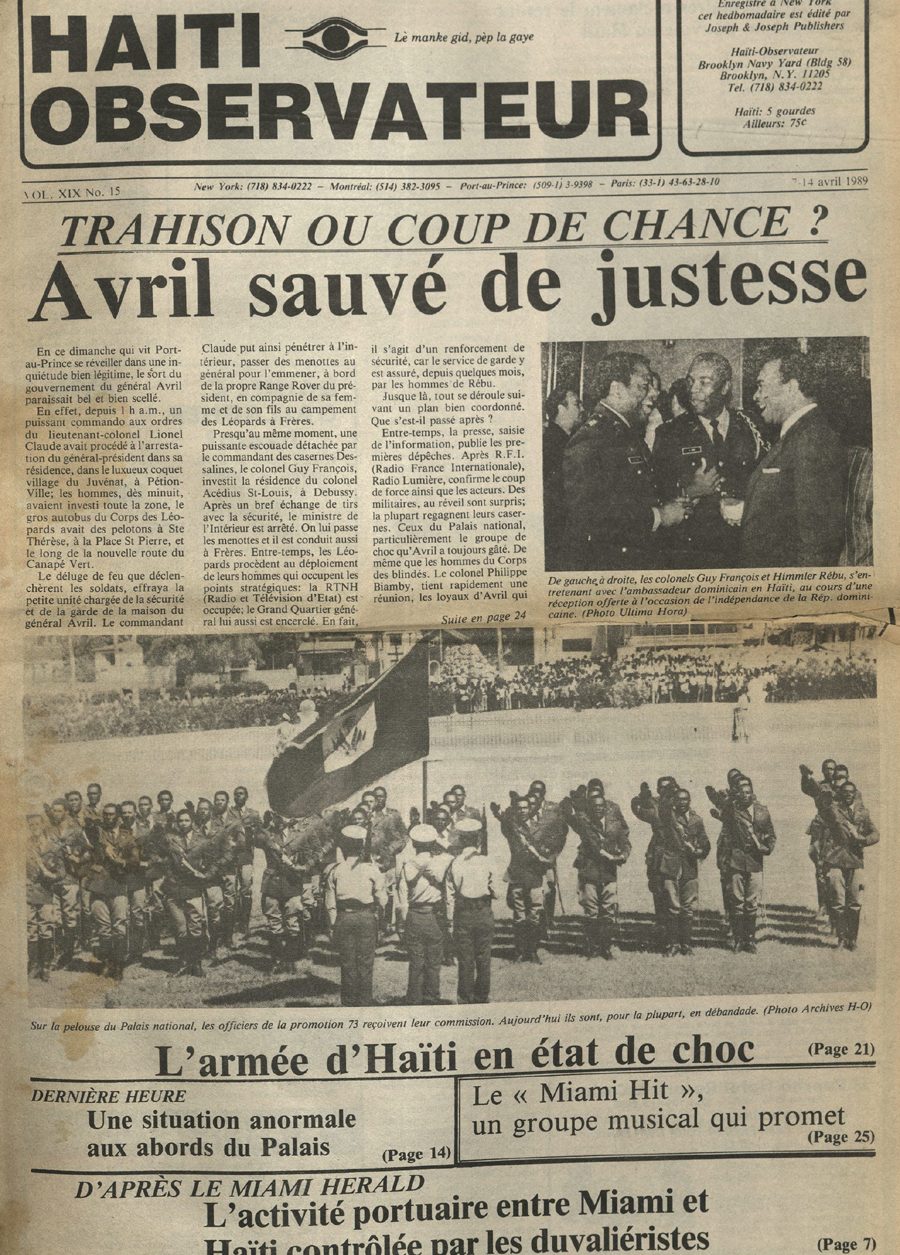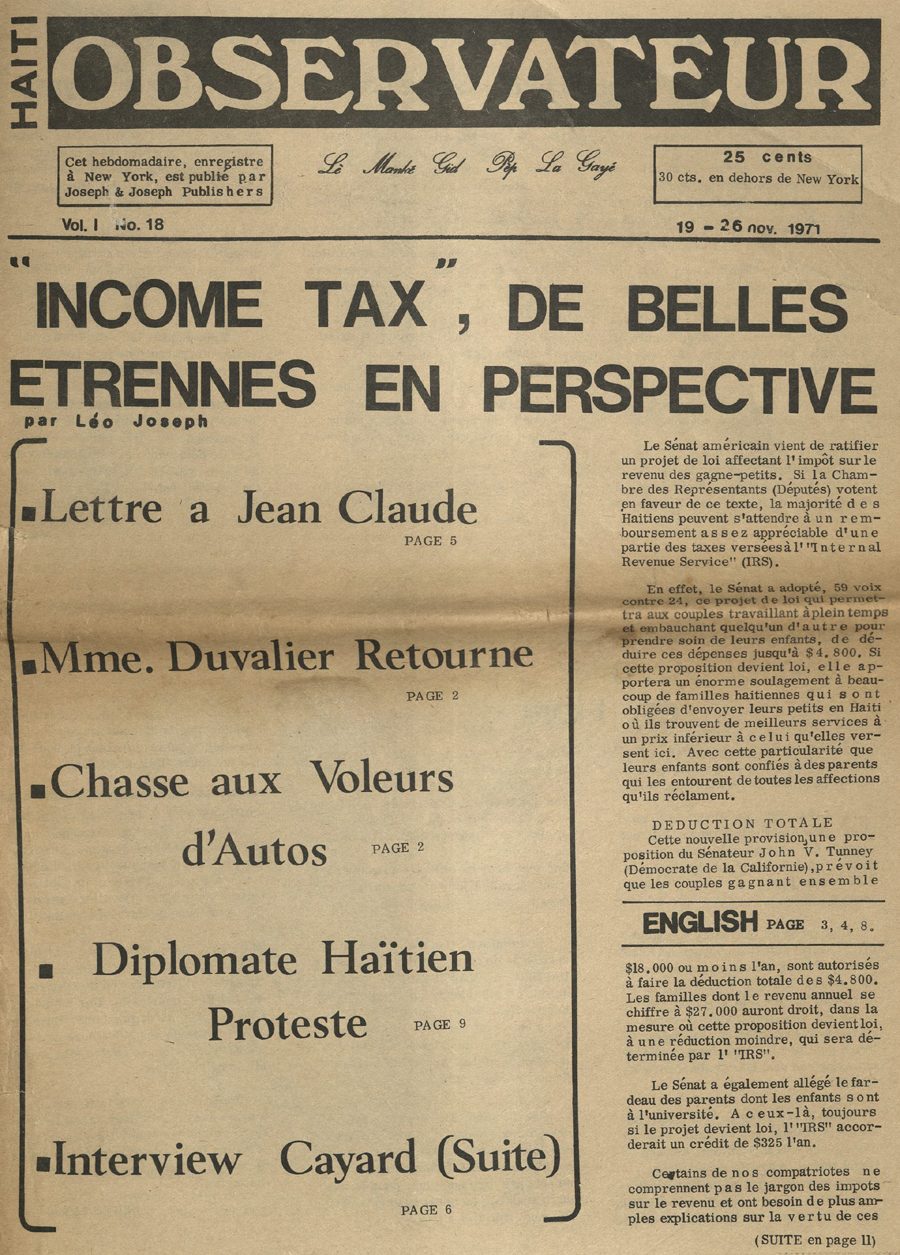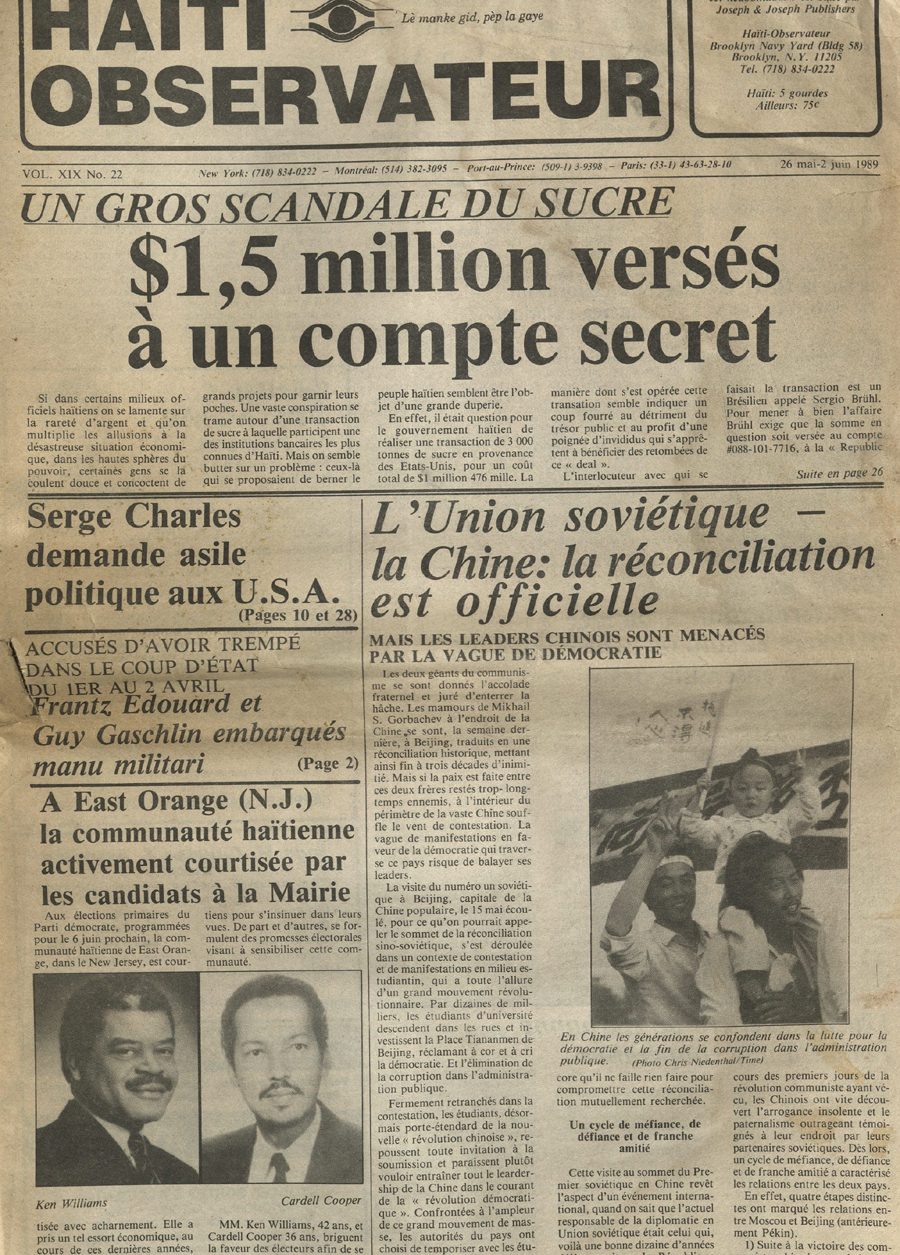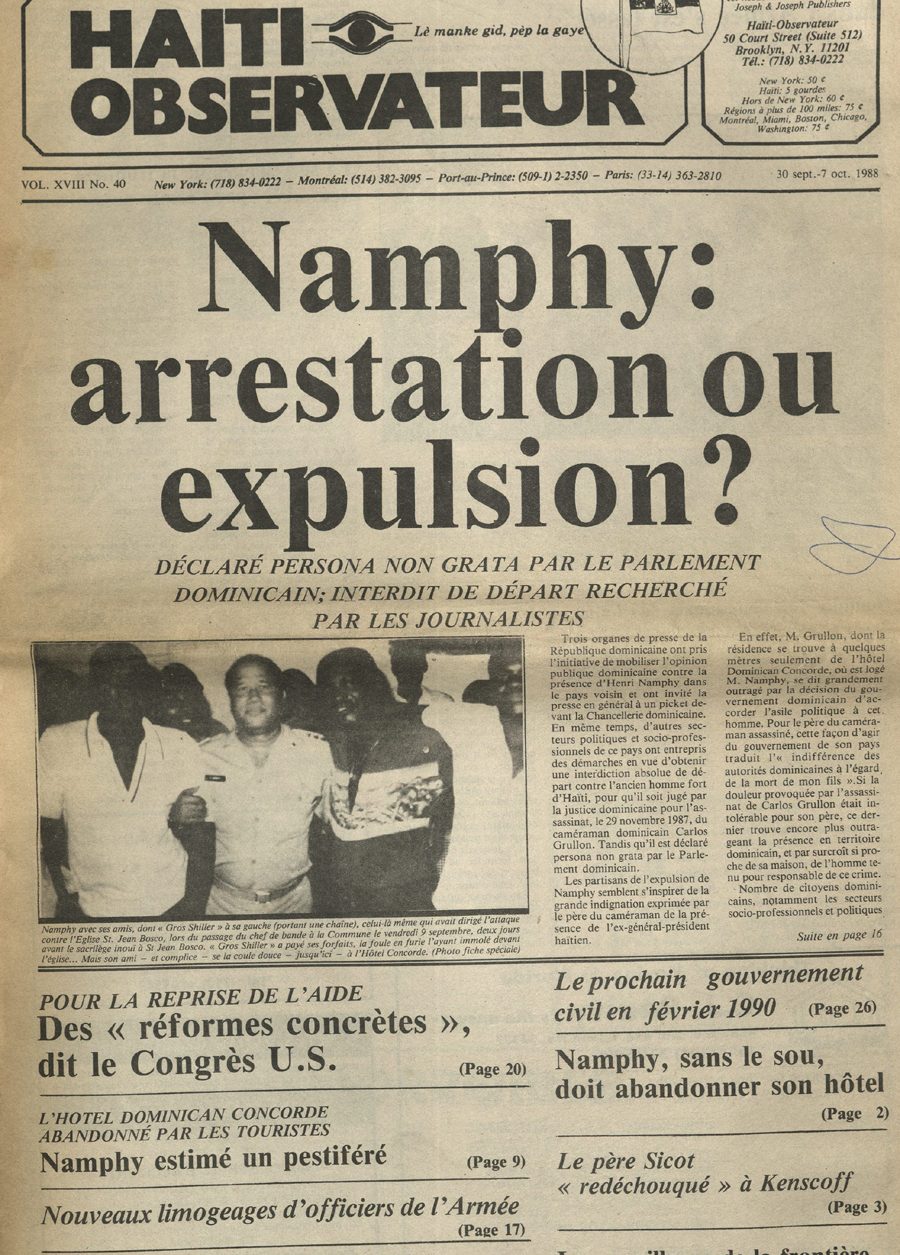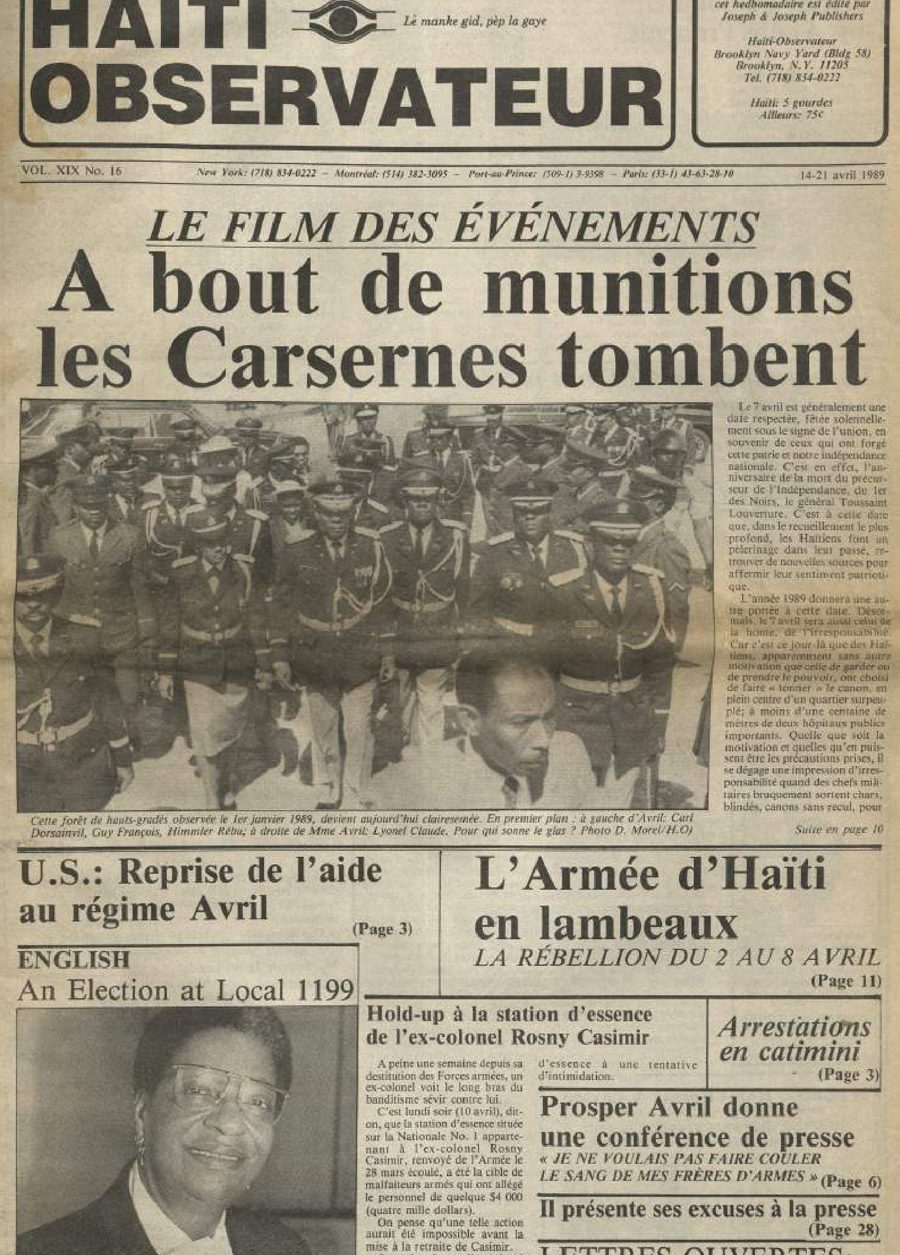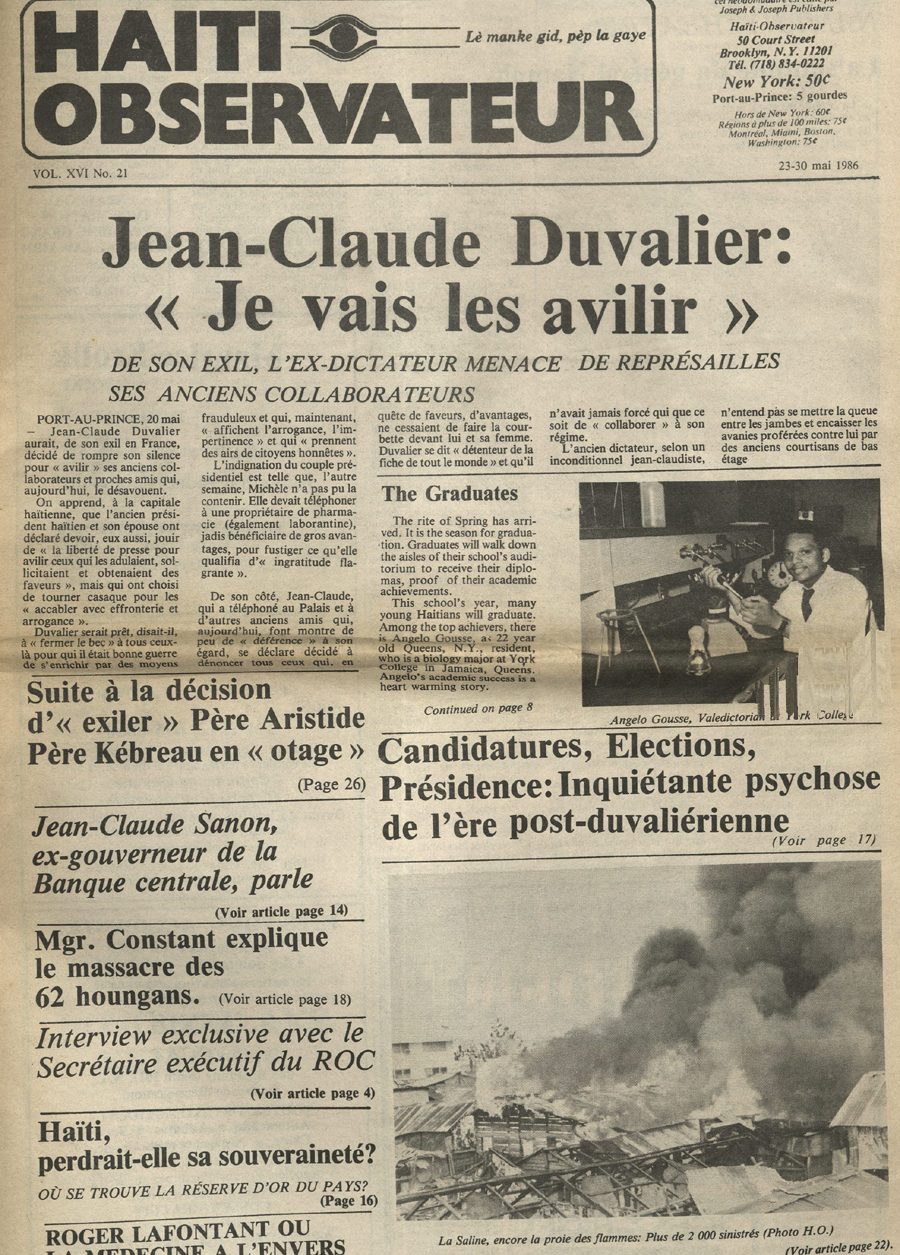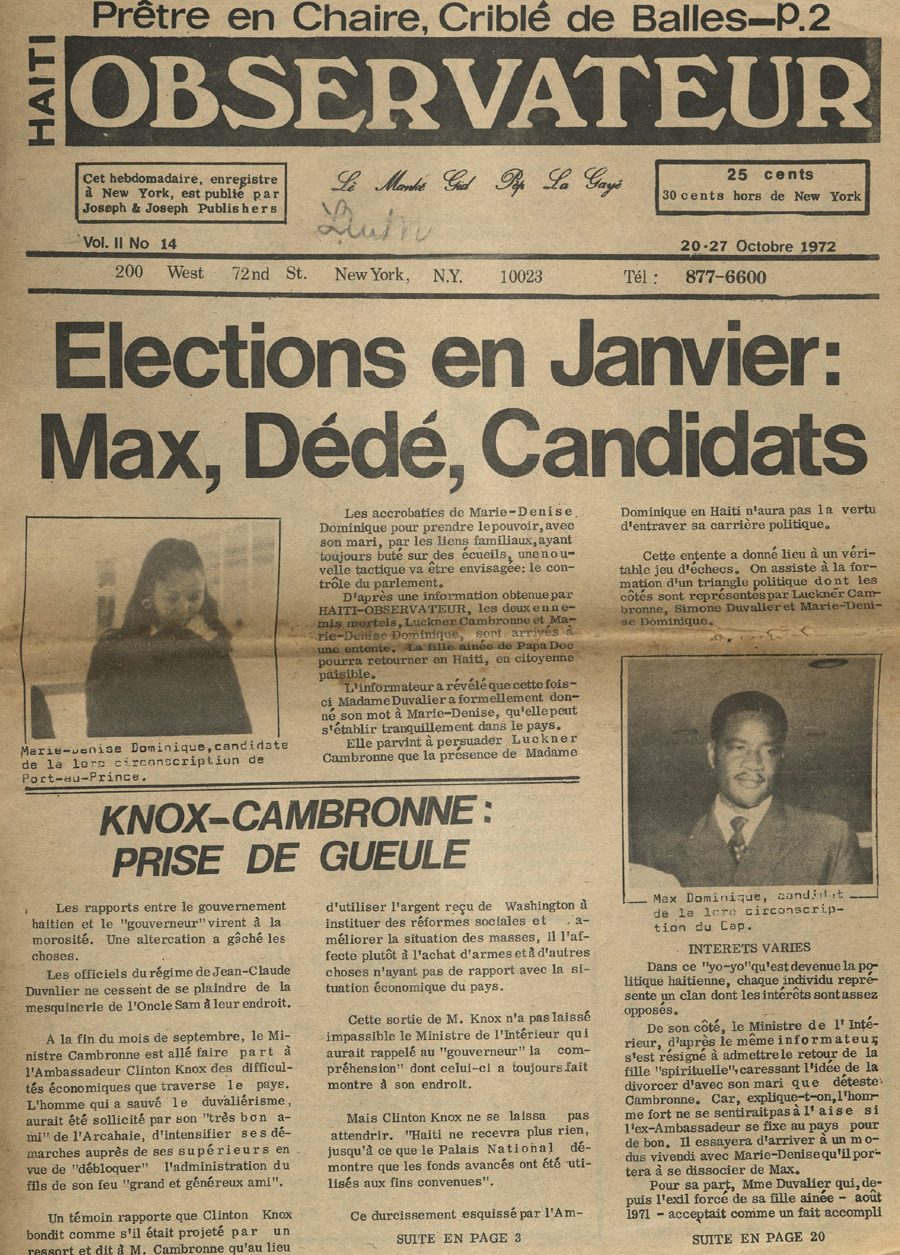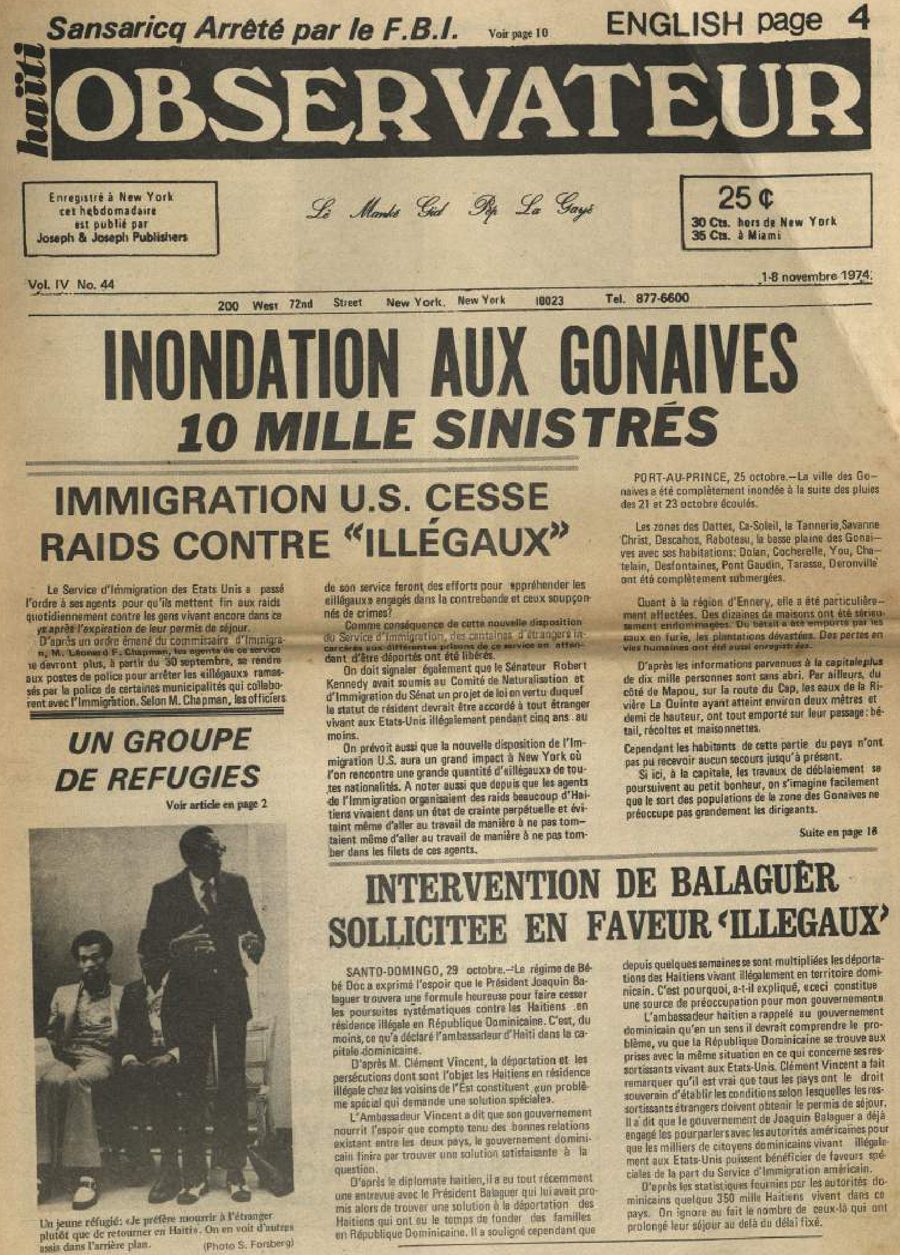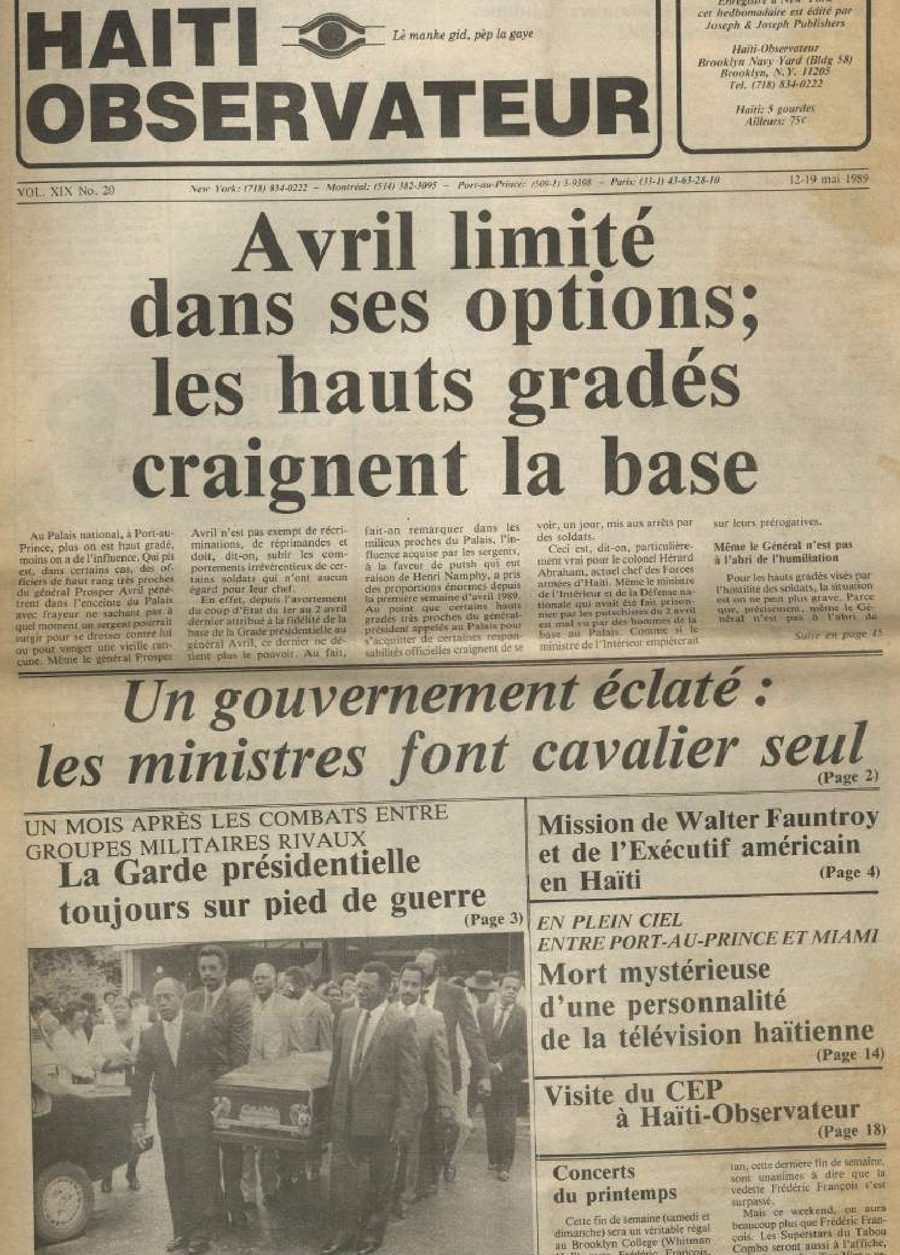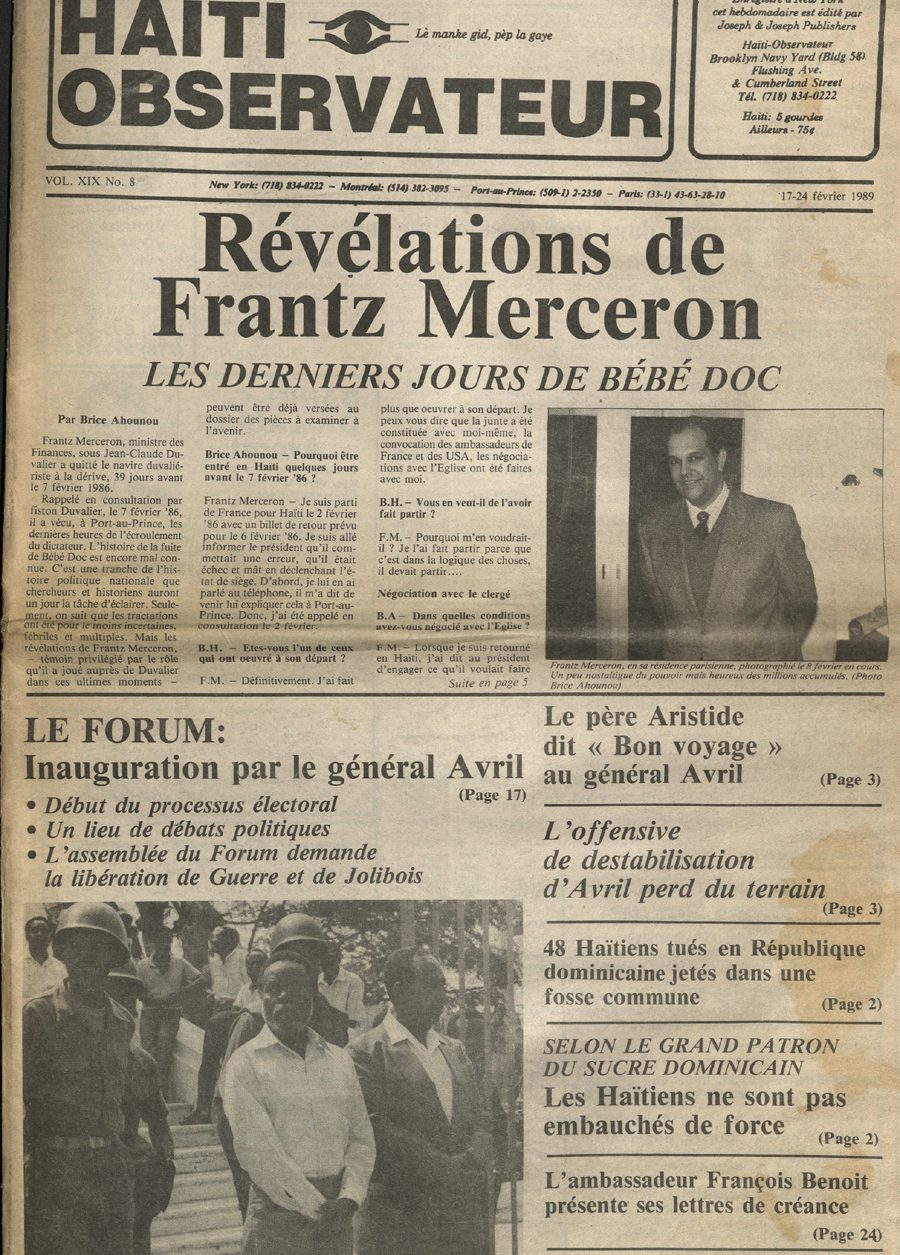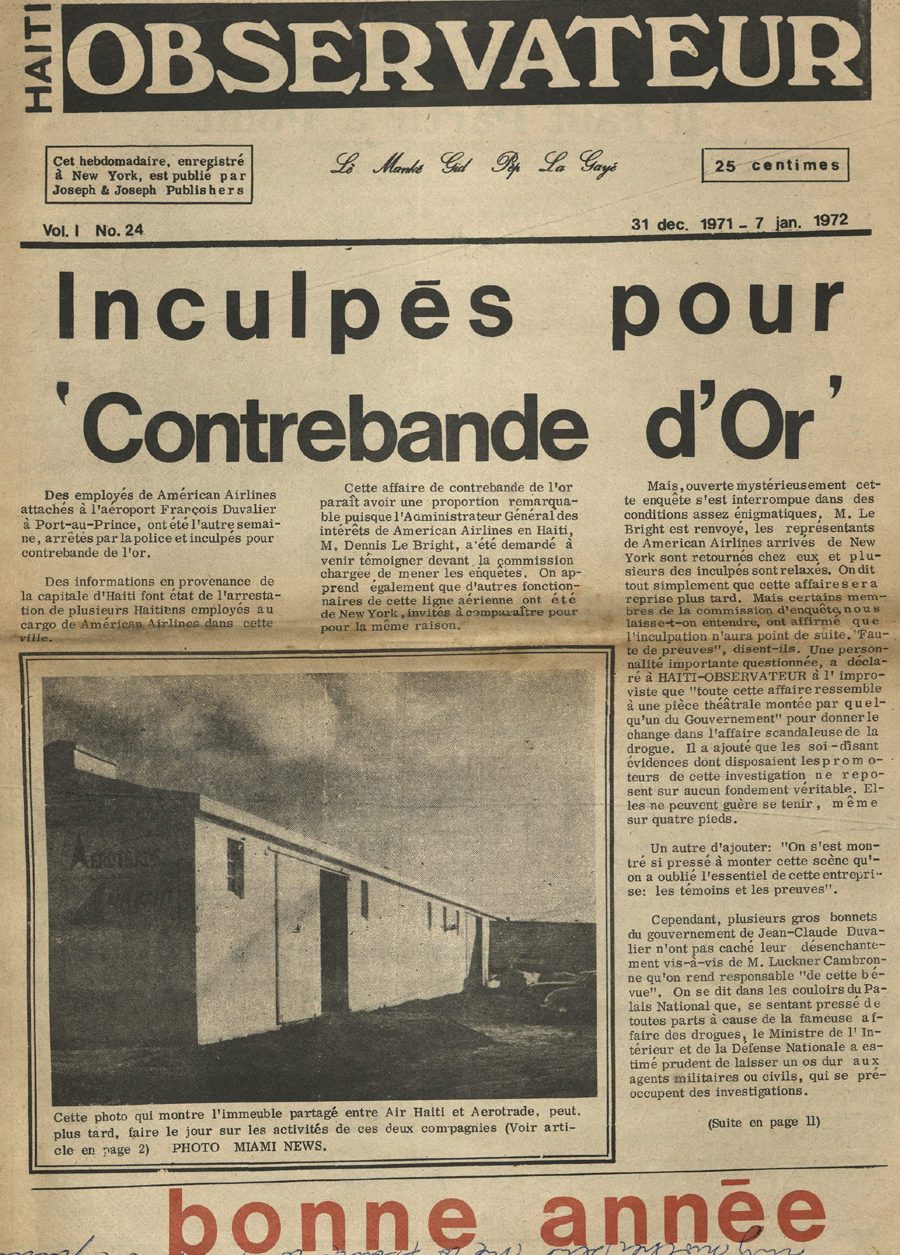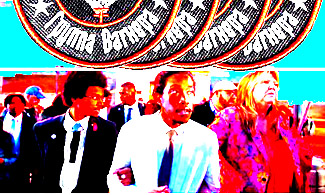
FROM RAY JOSEPH’S DESK
Special Newsletter II
Due to equipment failure, there won’t be an edition of the Haiti-Observateur this week. However, I feel that my readers should be updated regarding some of the latest developments that affect Haiti, still besieged by a multiplicity of crises.
The Dossier of the Wagner Group
This past week, I noticed that the New York Times, the Washington Post and the Miami Herald, as well as the social networks dwelt on Russia and China’s inroads in the Western Hemisphere, to the detriment of the United States, which considers the region its backyard. The stories are based on a leak of some Pentagon documents that dealt mainly with the war in Ukraine. However, Haiti is also mentioned, specifically in relation to the Wagner Group which, eventually, would be involved in finding a solution to the gangs that are causing death and desolation in Haiti.
This would mean that Russia would undertake to solve a major problem in Haiti, while the United States and Canada showed negligence, or incompetence, in taking care of matters in their so-called backyard. For, the fierce Wagner Group is composed of foreign mercenaries and rehabilitated Russian prison conscripts. Under contract, that Wagner Group has operated in certain countries in Africa, but recently, its units have been involved in the Russian war in Ukraine, where they’ve been merciless with their victims. The Wagnerians, as we coined the name, are said to be the most ruthless soldiers, sometimes using harmers to obliterate their captives.
What relation exists between Moïse Jean-Charles and the Wagner Group?
How, in the world, did Haiti get involved with the Wagner Group? We refer our readers to our first Special Newsletter, dated March 8, in which that name first appeared in relation to Haiti. In our reportage on the visit of former Senator Moïse Jean-Charles to Russia in mid-February, we noted that he hinted about an international change to the advantage of Haiti. On his return to Haiti in early March, he boasted that “We aren’t alone!” He explained that, on leaving Russia, he went to Turkey. From there, he flew to Cuba, then to Venezuela, before returning again to Cuba and from there, flying to Port-au-Prince.
Though he didn’t mention the Wagner Group, based on information we had received, we wrote the following: “I shudder at an information that I received last Saturday concerning some foreign fighters who either have arrived in Haiti, or are on their way. That has to do with members of the ‘Wagner Group,’ composed of mercenaries and Russian prison conscripts that Russia has been using in its year-old war in Ukraine.”
Where does Prime Minister Ariel Henry fit in the picture?
According to the Miami Herald, the leaked documents obtained by the paper, “show that Russian mercenaries were planning to pitch a plan to provide security in Haiti after months of unsuccessful negotiations led by the Unites States to form a multinational force to help tackle escalating armed gang violence in the Caribbean nation.”
Haiti’s de facto Prime Minister Ariel Henry quickly shot down the idea that he undertook any negotiation with the Russian group. Read this: “A top Haitian official told the Miami Herald that Prime Minister Ariel Henry has not had any discussions with the Wagner Group or any Russian officials, nor has he sought help from either as part of his request to international partners to deploy a rapid response force to Haiti to help the national police take on gangs.”
Undoubtedly, the Prime Minister knows that the assassination of President Moïse resulted from his opening to the Russians. Though few have paid attention to the following theory, the facts are what they are.
On June 2, 2021, President Moïse welcomed the Russian ambassador to Venezuela in Haiti, receiving him at the National Palace, where the diplomat presented his credentials as ambassador to Haiti. On June 17, President Moïse headed a 20-some delegation to Turkey where he met high level Russian diplomats who interceded for him with the Turkish authorities, asking that the Haitian chief get everything he wants at 50% discount. In turn, the Turks gave him an additional discount of 25%.
To say the least, the Haitian president was on Cloud 9, June 19, on his flight back to Port-au-Prince. As reported, President Moïse escaped a kidnapping plot at the Port-au-Prince international airport, due to the failure of a plane to arrive in time to fly him to an undisclosed country.
That’s when, it’s said, the kidnapping plot turned into one of assassination, which was carried out, in the bedroom of his highly secured residence, on the wee hours of July 7. Since then, 21 months have elapsed and “Justice for Jovenel Moïse” has been an quite elusive. Even the latest descent of FBI agents in Haiti, where they conducted some interviews and visited the former residence of President Moïse, at Pèlerin 5, above the upscale suburb of Pétionville, won’t lead anywhere. Not when a judge in Miami granted U.S. prosecutors their request of sealing some evidence in the case, to protect national security.
Regarding any statement attributed to Dr. Henry, his words must be taken with a grain of salt. One wonders why did Senator Jean-Charles had to fly to Port-au-Prince, on his return trip to Haiti, before going to his base in Cap-Haitian, where there is also an international airport? Are Cuban planes forbidden to land in Haiti’s second largest city? It’s doubtful. More likely, the senator was giving the Prime Minister a report about what he had accomplished during his successful trip abroad.
Also, Mr. Jean-Charles feels he has proper backing to undertake certain actions. As we wrote on March 8, “Before he went to Russia, as reported in the Happenings column in the February 8-15 edition of the Haiti-Observateur, Moïse Jean-Charles had signed a ‘unity pact’ with eight (8) other political parties, including a branch of the PHTK, Bald-Headed political party, which propelled Ariel Henry to power and had been a strong ally until recently.”
In conclusion then, by which I still stand: “I believe Haiti is entering a turbulent period. Indeed, much more turbulent than what the country is currently undergoing.”
____________________
*The gangs kill three policemen in Thomassin
On Sunday, April 9, the Day of the Resurrection, celebrated as Easter, three policemen –Dorcely Pierre Paul Junior, Fortilien Medèze and Nicolas Robenson, were ambushed in Thomassin 48, an upscale community, in the hills above Pétionville, and gunned down by bandits said to belong to the Ti Makak (Monkey Jr.) gang.
According to the National Union of Haitian Police Officers, this brings to 21 the number of police officers killed in the line of duty since the beginning of the year. These are to be added to the 78 others reportedly murdered since Dr. Ariel Henry assumed the role of Prime Minister on July 20, 2021.
The Prime Minister presented condolences to the affected families and tweeted: “Our police brothers have today, once again, fallen under the murderous bullets of lawless thugs. We deplore these barbaric acts.”
How long will the Haitian people continue to passively accept just condolences from the sole leader of the nation who, through his actions toward the gangs, shows that he’s in cahoots with them. And the international community, represented in Port-au-Prince by the CORE Group syndicate of Western ambassadors, continues to fully support Dr. Henry. Doesn’t that amount to complicity with the assassins of the defenseless citizens? For how long will the people endure it?
*In the U.S. also, massacres of civilians become the norm
This year is proving to be a record one for massacres, with 130 mass shootings already registered in the first quarter of the year, according to the Gun Violence Archive. The most recent was last Monday, in a downtown bank in Louisville, Kentucky. A mass shooting is considered when there are at least four victims.
The situation is dire, with some states like Louisiana, Pennsylvania, Tennessee and the District of Columbia (Washington, D.C) having registered two or more massacres. Other than the three states and the District of Columbia mentioned, 14 other states across the land have registered a least one massacre in the first quarter of the year: Arkansas, California, Colorado, Florida, Georgia, Illinois, Kentucky, Maryland, Minnesota, North Carolina, South Carolina, Tennessee, Texas, Virginia and Wisconsin.
The Tennessee massacre compels strict gun control
We’re the most struck by what happened, March 28, in Nashville, Tennessee, at the private school of the
Covenant Presbyterian Church, where three adults and three 9-old children were gunned down by a young woman, who was also felled by police gunfire. Interestingly, that woman, Audrey Hale, a former student at the school, reportedly had some mental issues. Nevertheless, she was able to legally purchase seven firearms, including the three that were used in the massacre.
That massacre has caused an uproar of national proportion, especially when two Black councilmembers were voted out of office by the Republican majority in the Legislature, for having their having joined demonstrators who invaded the legislative chambers, demanding justice for the gun victims and strict regulation on guns.
While the two democrat councilmembers, Justin Pearson and Justin Jones were ousted from office, their colleague Gloria Johnson, was spared. She continued to support the two, responding to a question that she was spared their fate, because of her skin color.
The stand of the two Justin lawmakers against the racism of the Republican majority has become a national movement calling for justice to be done in their case. On Monday, April 10, the Nashville governing council voted to send Justin Jones back to the Legislature. It’s expected that the same will happen in the case of Justin Pearson.
Meanwhile, on Easter eave, last Saturday, the Senate in the State of Washington voted overwhelmingly to approve a bam on assault weapons in the state. Governor Jay Inslee is expected to sign the bill into law. Hopefully, this is the beginning of a national movement that will put the onus on the National Rifle Association (NRA), the strongest gun lobby in this country which spends millions on corrupt legislators both at the state and the federal levels to thwart measures of gun control.
We expect to see more lawsuits against U.S. gun manufacturers, similar to that which was filed by Mexico, joined by the Caribbean states, except Haiti, and those in Central America, calling for a halt on the indiscriminate flooding of their countries by the gun manufacturers of these instruments of death.
It’s time for a national awakening in the United States, where an undeclared war by the gun lobby and its fans is causing thousands of victims every year.
RAJ, 12 April 2023, at raljo31@yahoo.com


